Enabling Water Smart Communities (EWSC) is an innovation project for exploring the relationship between water management, community engagement practices and housing development. It seeks to unlock cross-sectoral innovation opportunities for water and housing infrastructure delivery toward more climate-resilient communities.
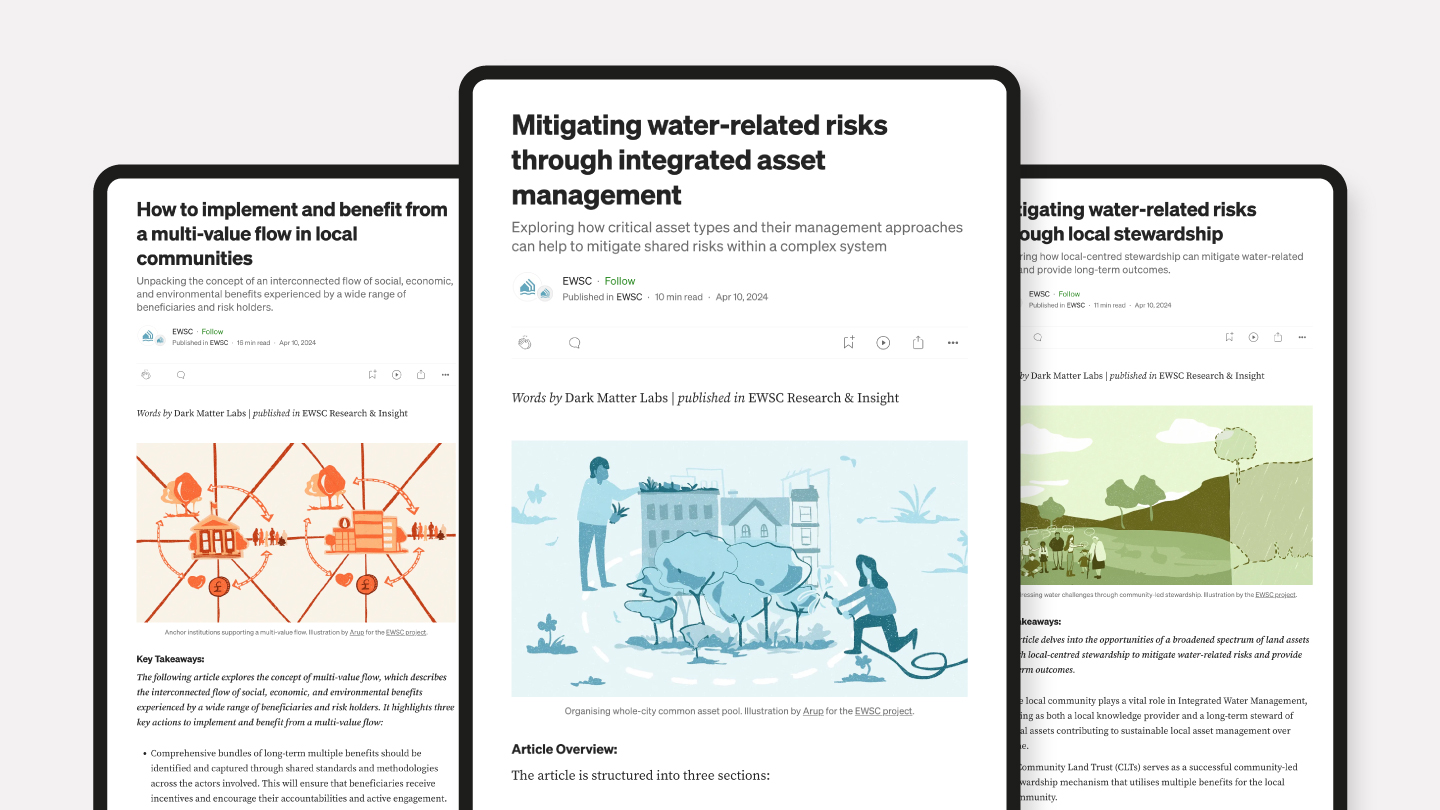
Bringing my expertise in system thinking, infrastructure innovation and community empowerment, I collaborated with the core team to reframe challenges and identify innovation opportunities during the Discovery Phase. The framework was developed by analysing the wider relationships between the challenges through systemic research and focus group interviews. The identified shared opportunities are outlined in innovation pathways to build gradual collective action.
The core challenge of this project was its scale and complexity. However, building aligned languages has led to recognising a collective need for change, which has steered the innovative journey. Driven by the articulated common goals, the project is the process of implementing the framework through 3 pilots.
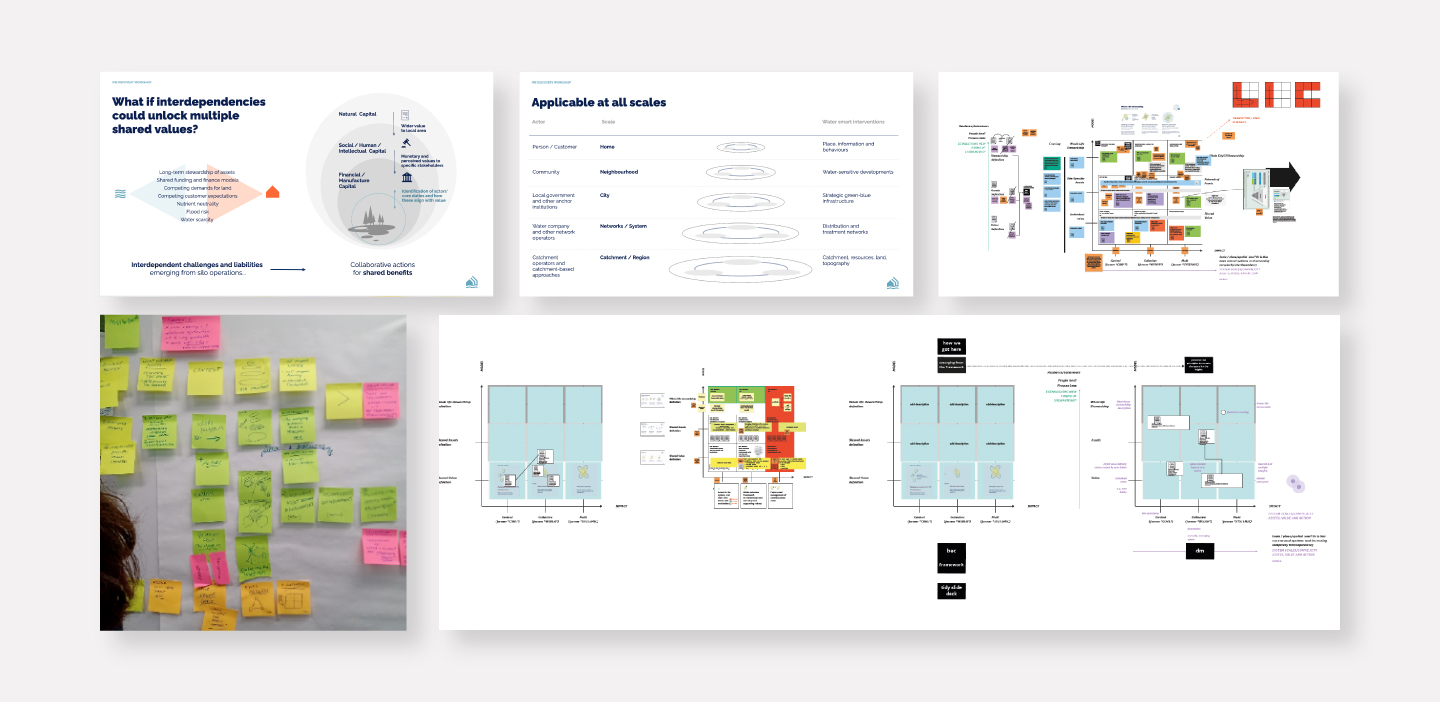
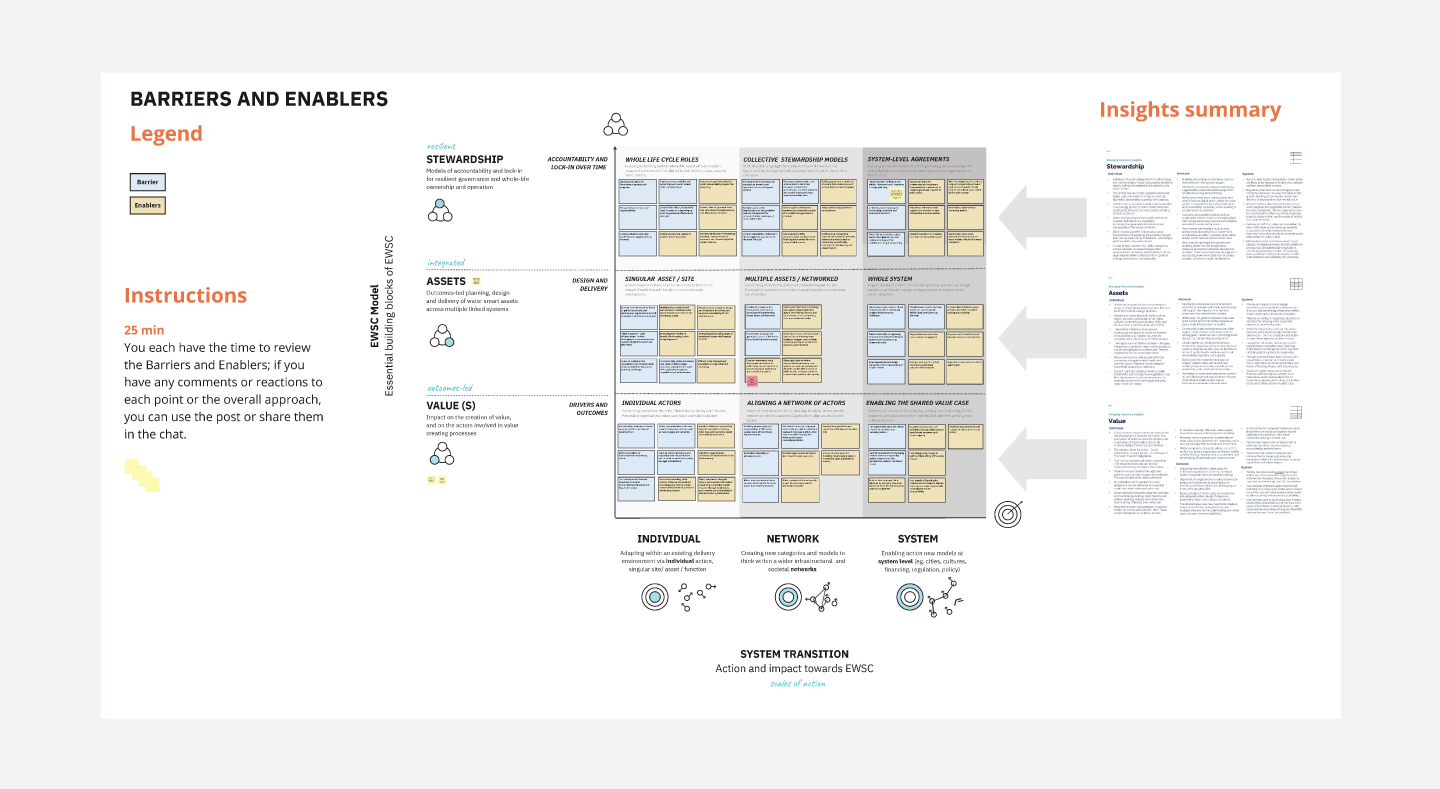

Re:Permissioning the City employs a digital platform to facilitate light-touch, flexible, and multi-use planning permission from local government, empowering community-driven creative space appropriation. The platform addresses the utilisation of urban space, particularly vacant spaces, arising from the pandemic and demographic shifts.
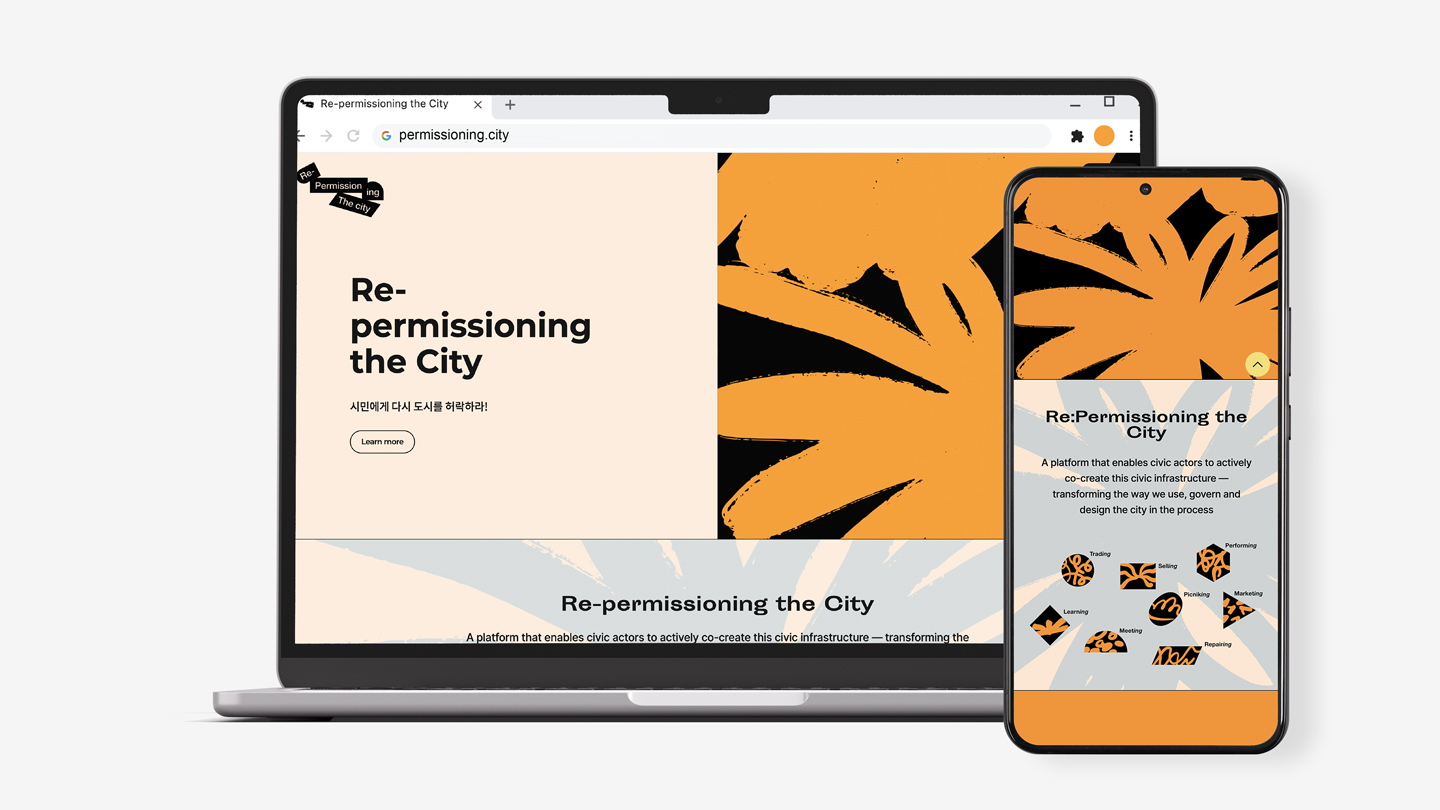
Drawing upon my expertise in reframing challenges and community empowerment in the built environment through digital platforms, I spearheaded the creation of the project's foundational narrative. Using vacant spaces could create new opportunities to experiment and develop new civic activities that can leverage new skills while revitalising the local economy. The platform framework design has been refined through workshops and interviews.
This was the stage of positioning the service. Desk research and interviewing a wide range of stakeholders fulfilled the societal and local municipality's needs while challenging to apply to everyday life. Meanwhile, engagement with a local community group through a prototyping workshop uncovered specific user groups that would use and implement the service within their existing communities. Oscillating between user, business, and societal views is essential to accomplishing public value while enabling residents' engagement, which is obvious but often neglected.
The project is now in the stage of developing a tech prototype and realising the idea.
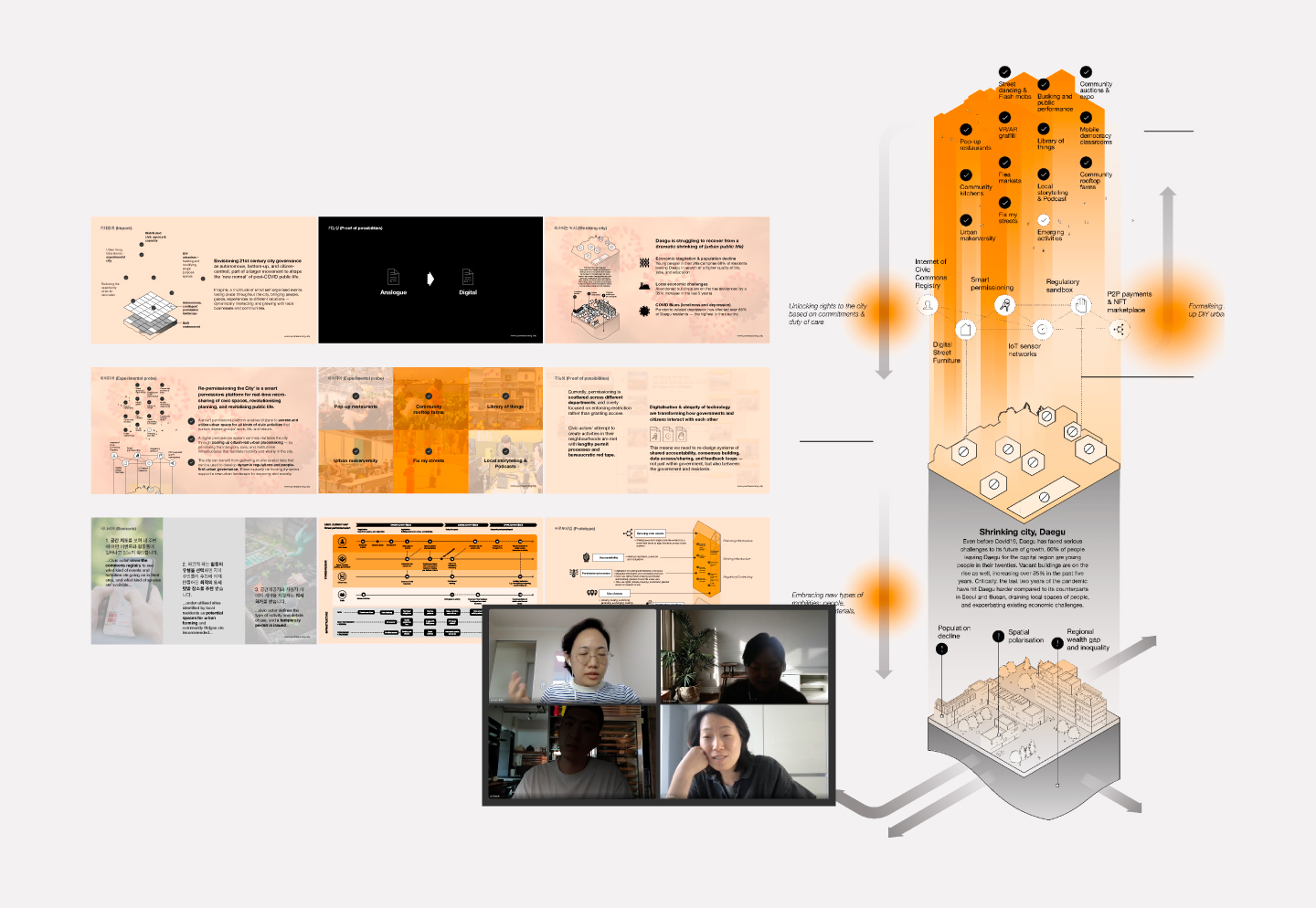
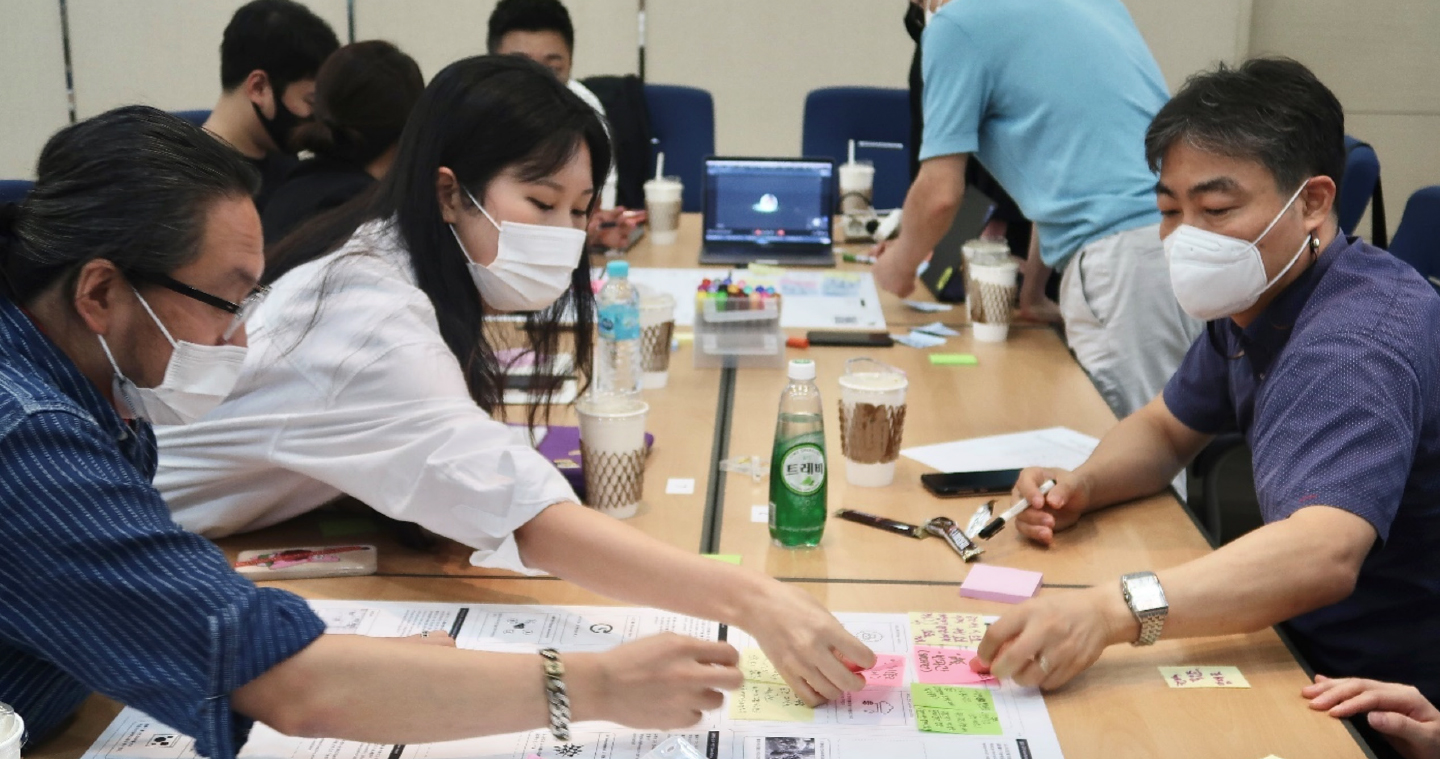
The project collectively developed frameworks and strategies combining technology and civic innovation with Daegu Technopark, tech enterprises and local citizens. Our efforts aimed to address key themes identified by residents, including:
- Deteriorating fine dust pollution
- Street safety for children and youth
- Illegal dumping of domestic waste
- Urban water management in the context of climate change
- Child safety and childcare
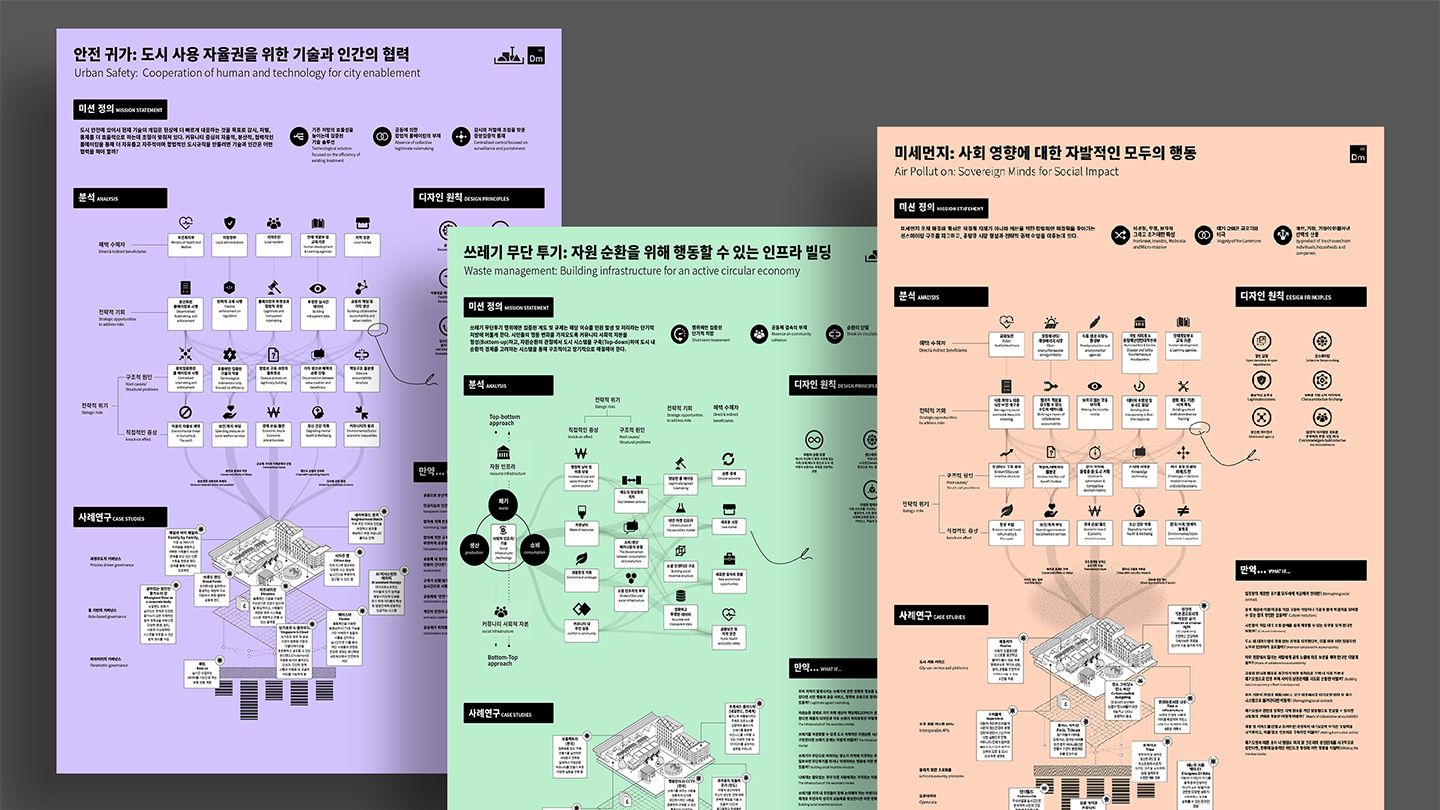
In my role, I established the program manual and its process by anchoring the project to principles of collective sensemaking, open experimentation, distributed agency, and civic commons. The project aimed to empower citizens as agents of change, not just participants, by shifting the challenges into shared opportunities. It involved reframing challenges via workshops, system mapping, and collective building.
After 5 years of operating the program, the city has shifted its innovation approach from top-down to residents as agents of change to tackle urban challenges.
The key learning from the project was using co-creation moments that unfold real problems into service development. Often these challenges, such as incentive structure, data policies, behaviour change and operation processes, do not exist in silos but in intersections, which require significant collective understanding and endeavour to identify, focus on and innovate.
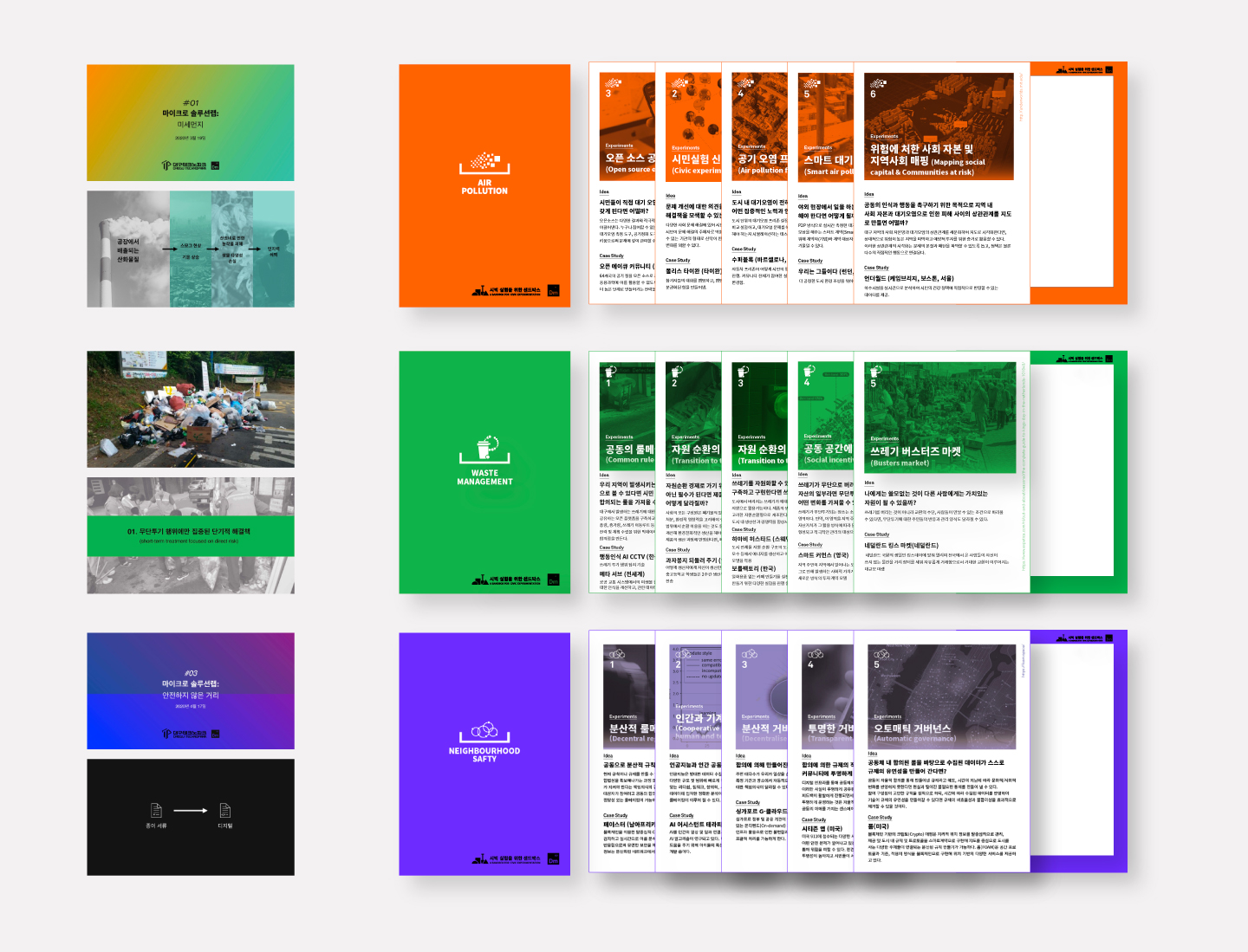
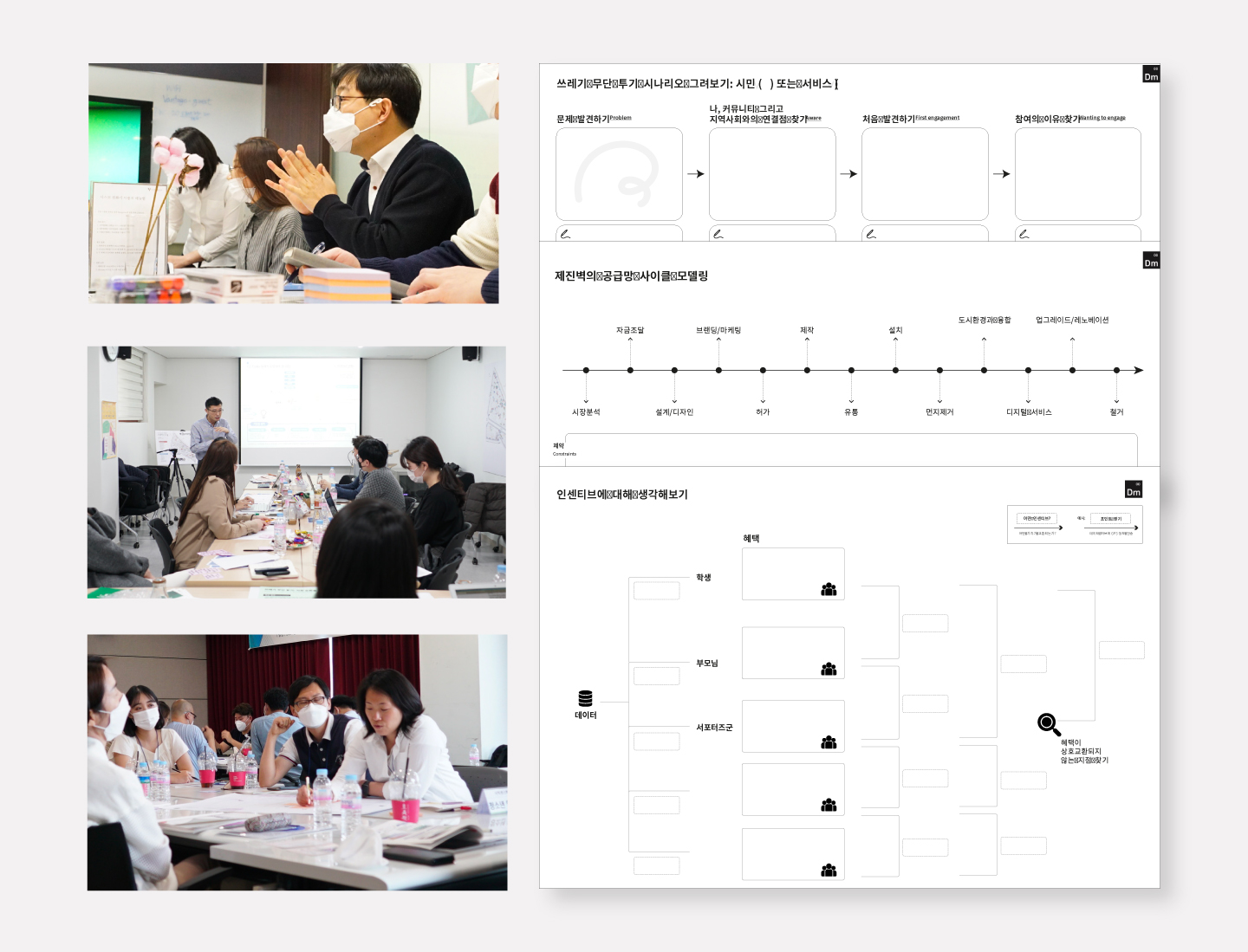
This initiative aimed to develop a global social innovation campus in Asia. A collaborative research project focused on nurturing foundational capabilities and envisioning equitable transitions through collective action. The area of research included developing a strategy for an innovation campus, iterating architectural plans and facility management/operation plans, and also creating an ecosystem with financial models for its sustainable growth.
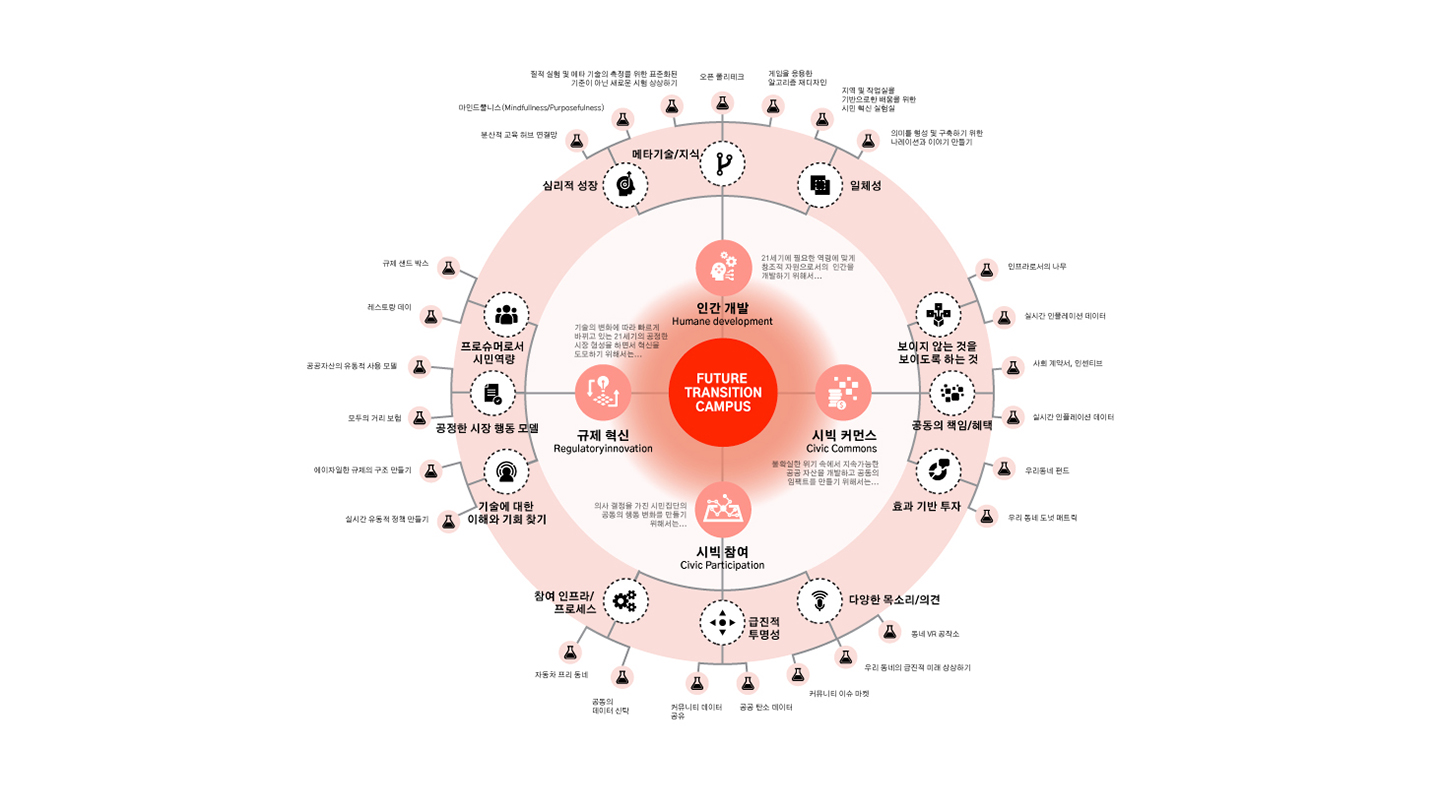
As a member of the core team, using my spatial and program design background, I developed a strategy encompassing architectural and facility management plans. Additionally, I addressed key urgent challenges by developing capacity-building programs that leveraged system thinking, future foresight, and collective storytelling.

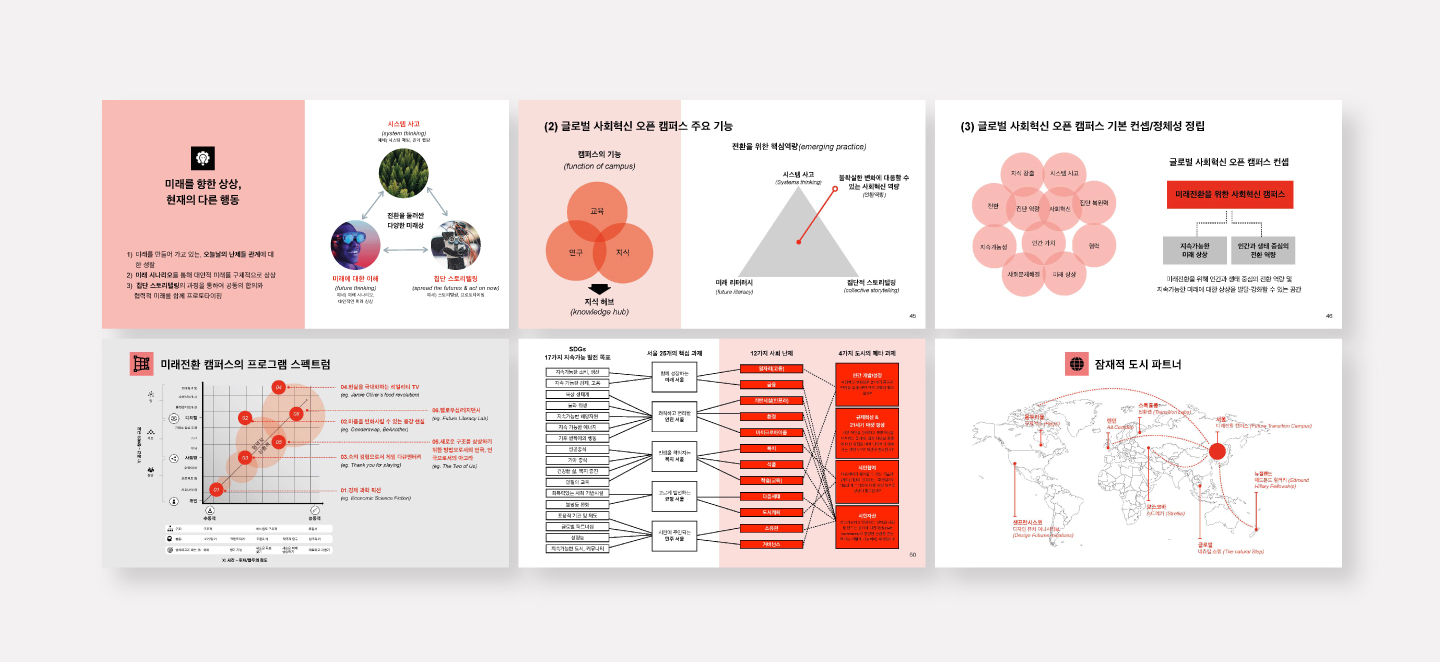
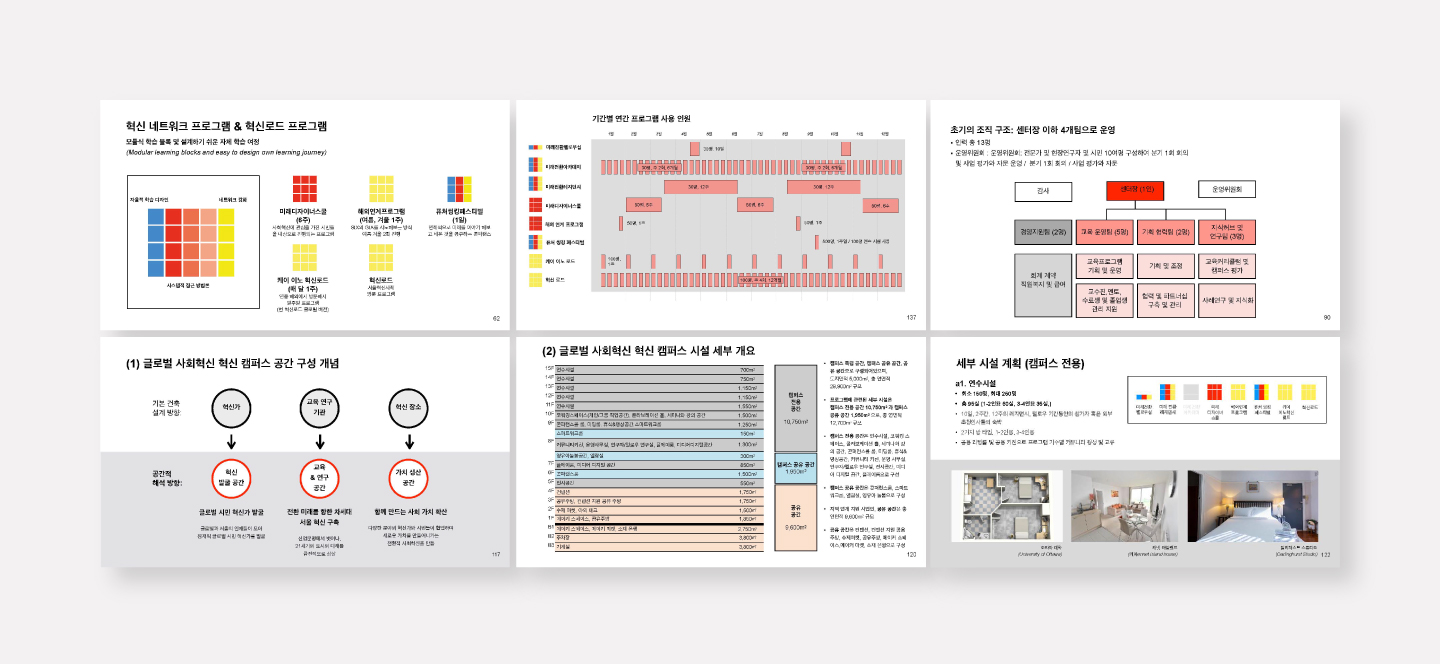
Tomorrow's Chodang aims to develop an anchor program that fosters collaboration and innovation among local communities for sustainable tourism and the local economy. By approaching the physical site as a local service, I developed a concept and integrated service that scaffolds a sustainable local ecosystem for residents and tourists to engage with and build in Gangneung's Chodang-dong.
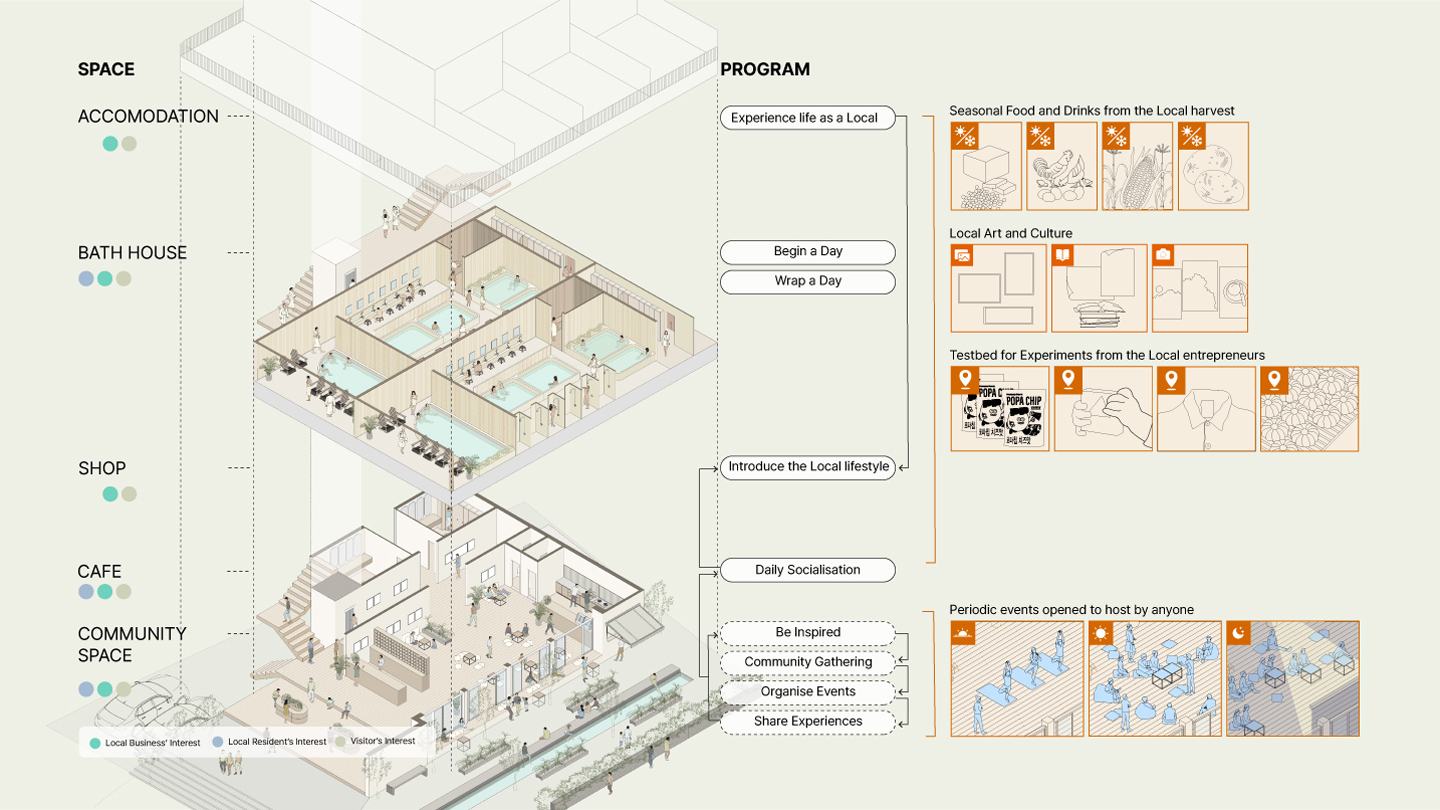
Through interviews, data analysis and journey and ecosystem mapping, I reframed challenges and opportunities faced by communities, local entities, and public sectors. Using these insights, I developed a cross-digital and physical program centred on a bathhouse with mixed everyday experiences. By balancing the needs of residents and visitors, the space serves as a hub for exchanging information, networking, and skills, promoting collaboration and shared goals.
The platform's mission and concept are evolving and being realized by more than 15 local partners.
The key learning of this project is the strategic approach to collecting data to develop concepts and build partnerships. Large-scale quantitative data like population change and economic structure informed legitimate needs in societies and industries, which navigates 'what to aim for'. Grounded engagements with local actors have driven the identification of everyday life's cultural and cognitive demands, while hands-on involvement cultivated a foundational set of collaboration partners.
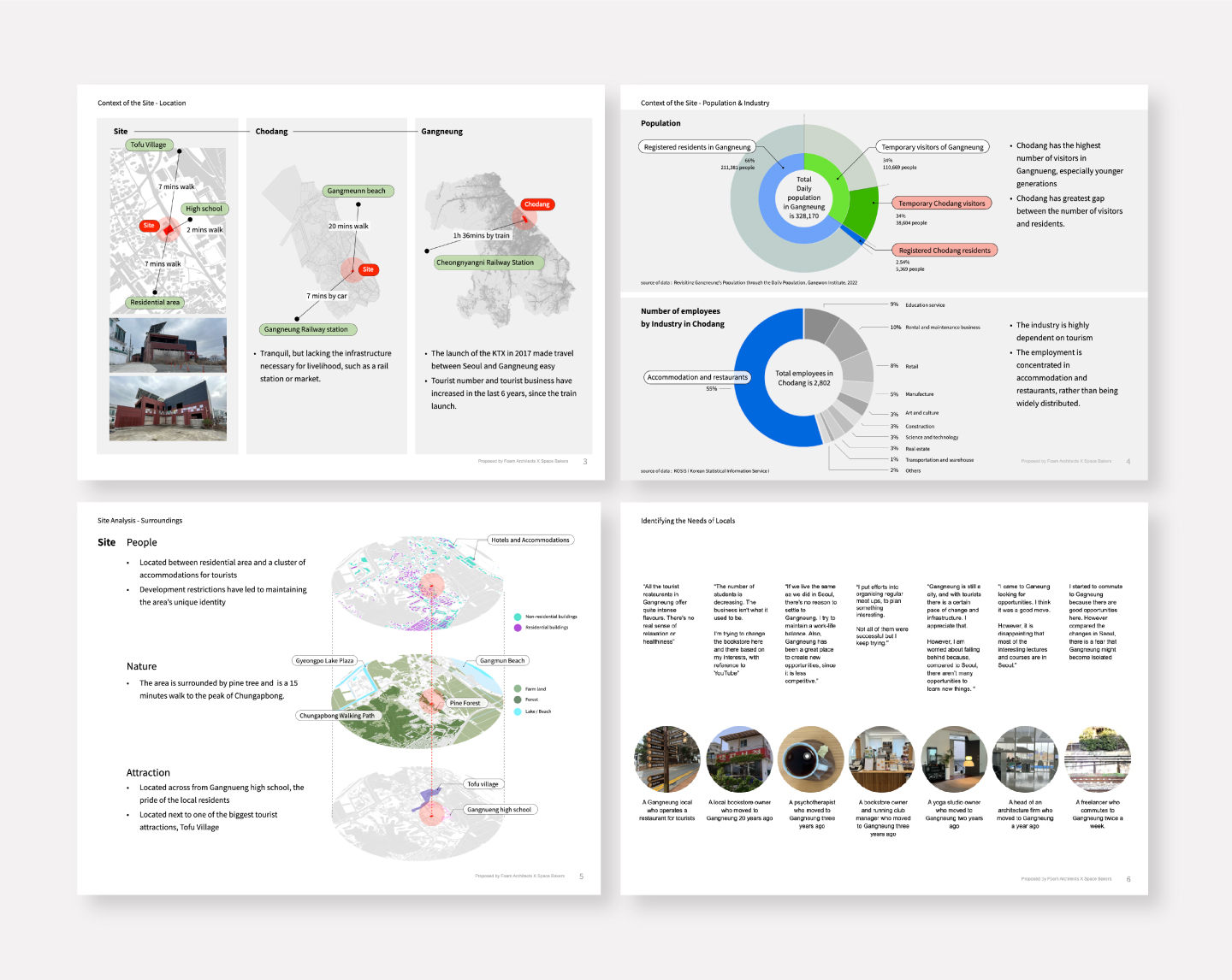
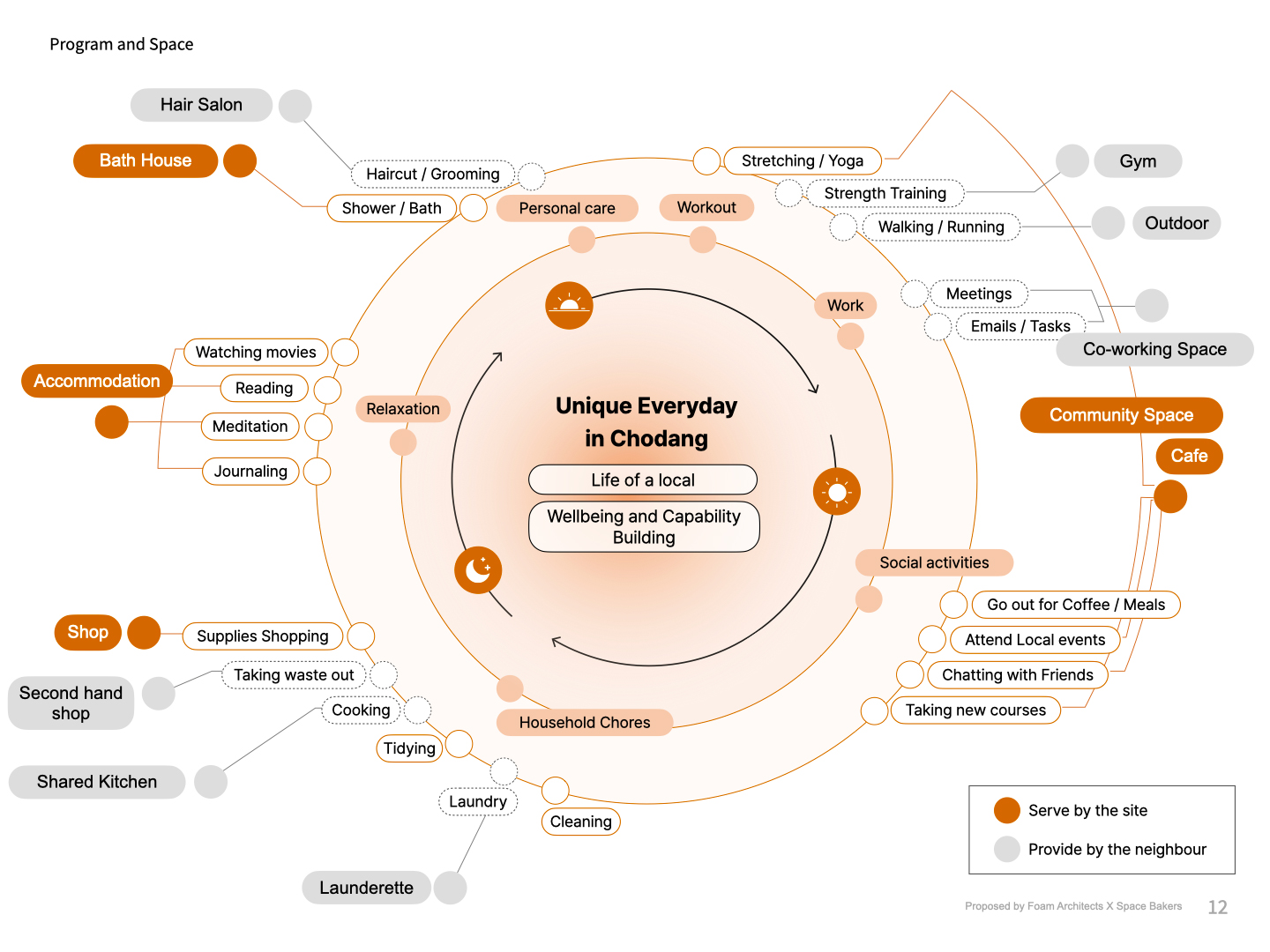
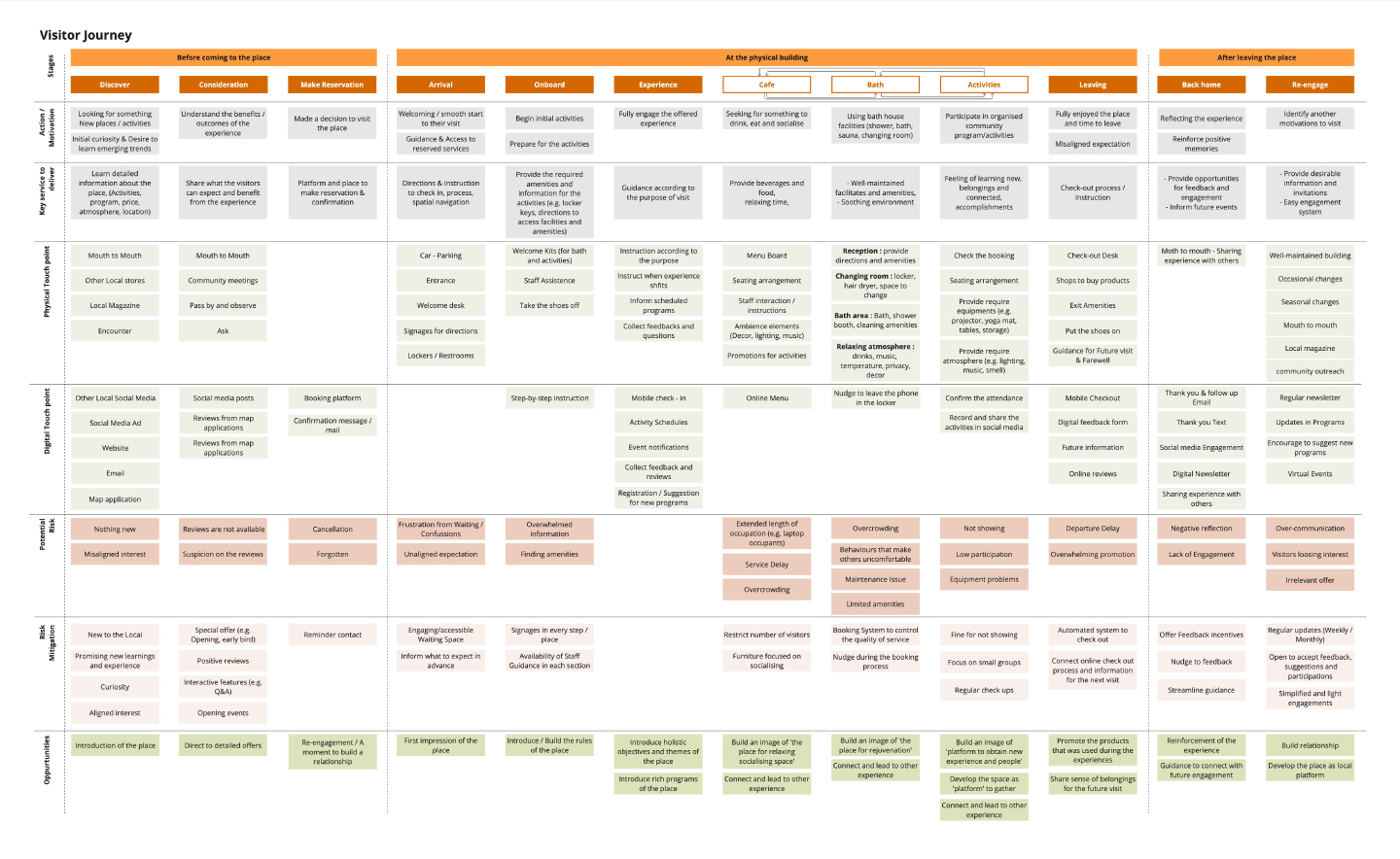
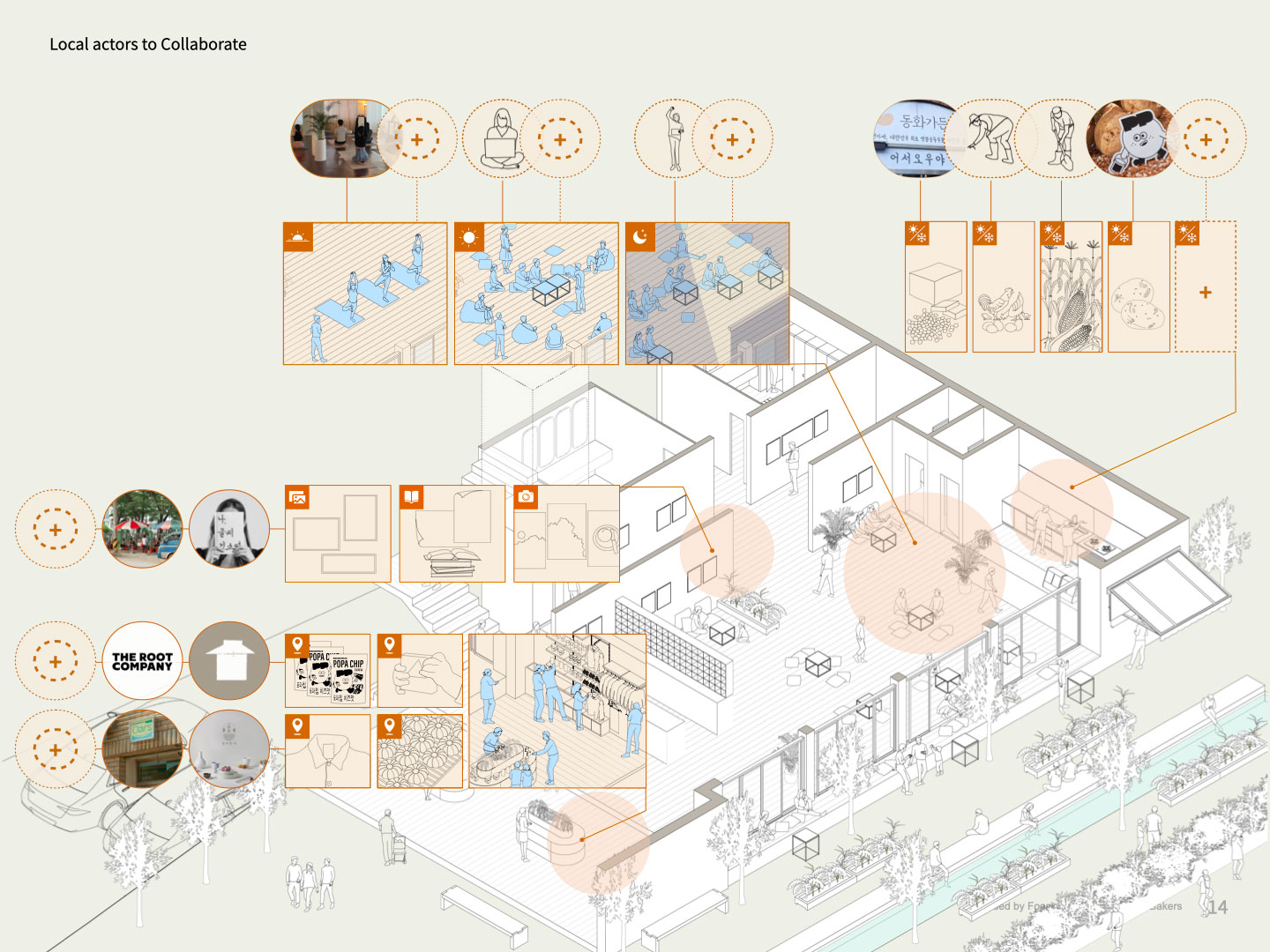
Waterschool is a design research initiative and a community I have dedicated myself to since joining Studio Makkink & Bey in the Netherlands in 2017. The project aims to address water shortage and management by rethinking of the economic and infrastructural model of education.
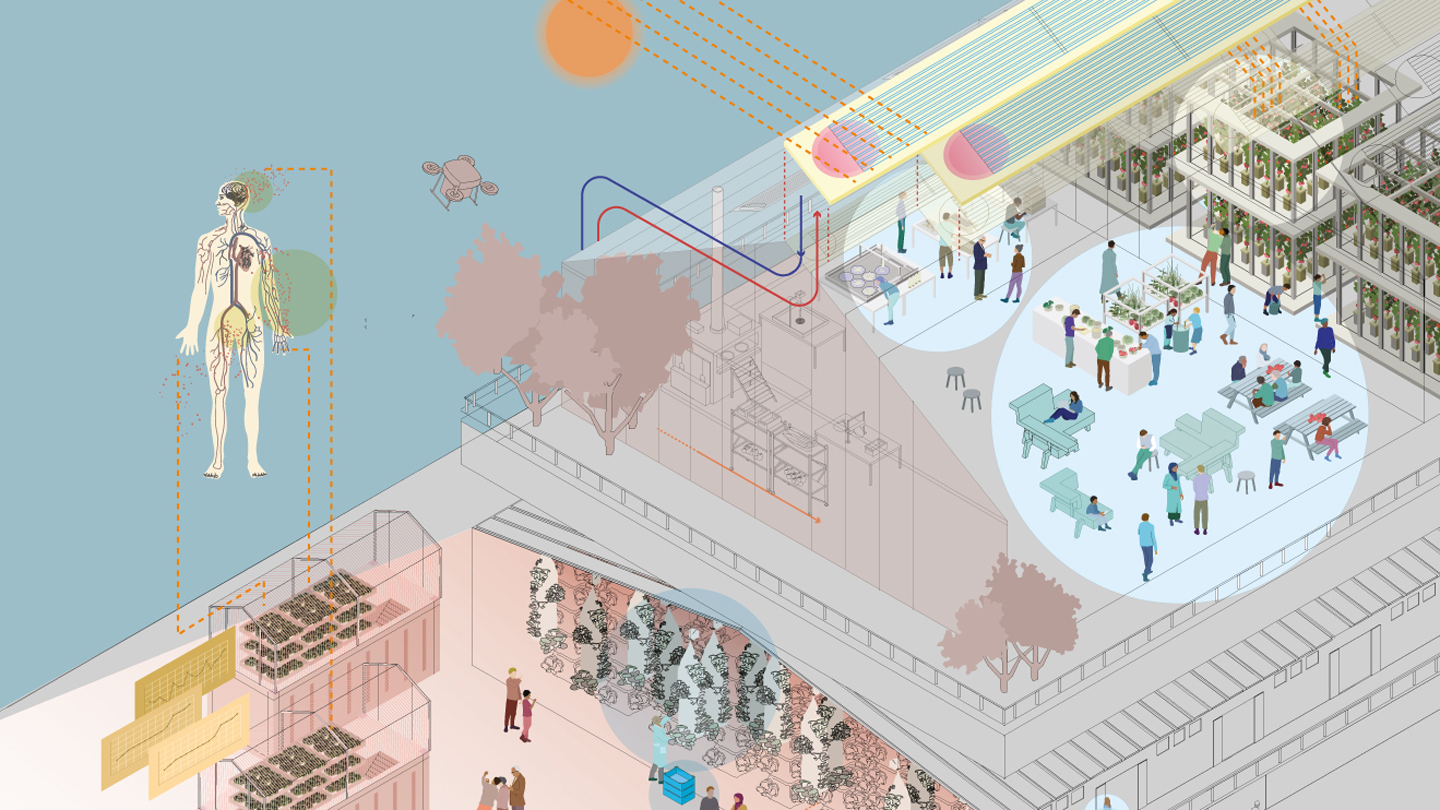
In my role as a researcher and communication designer, I developed and communicated the envisioned
future through film, illustration, and research in various locations, including Rotterdam M4H
(NL), Noordoostpolder (NL), Istanbul (TK), and Dwarka (IN).
The project has expanded to more than 48 communities, inspiring 17 places internationally and engaging in diverse formats, including radio, workshops, talks, videos, and exhibitions.
Waterschool was the project that led me to system thinking. No single product or service can stand alone. From this recognition, initiating a new opportunity could launch from a product along the chain of production and implementation, or it could also begin with students in the school, spreading across generations and members of communities.
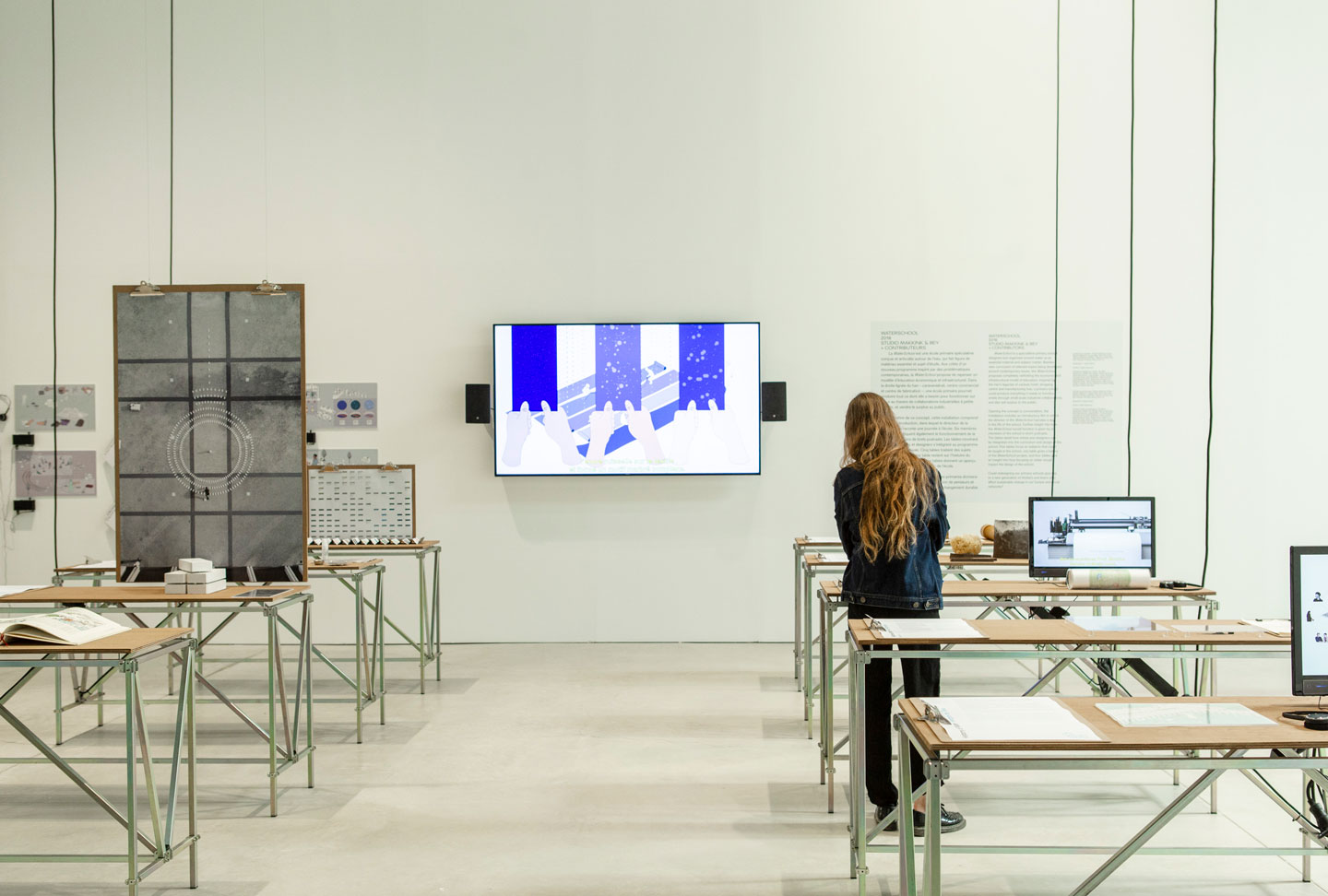
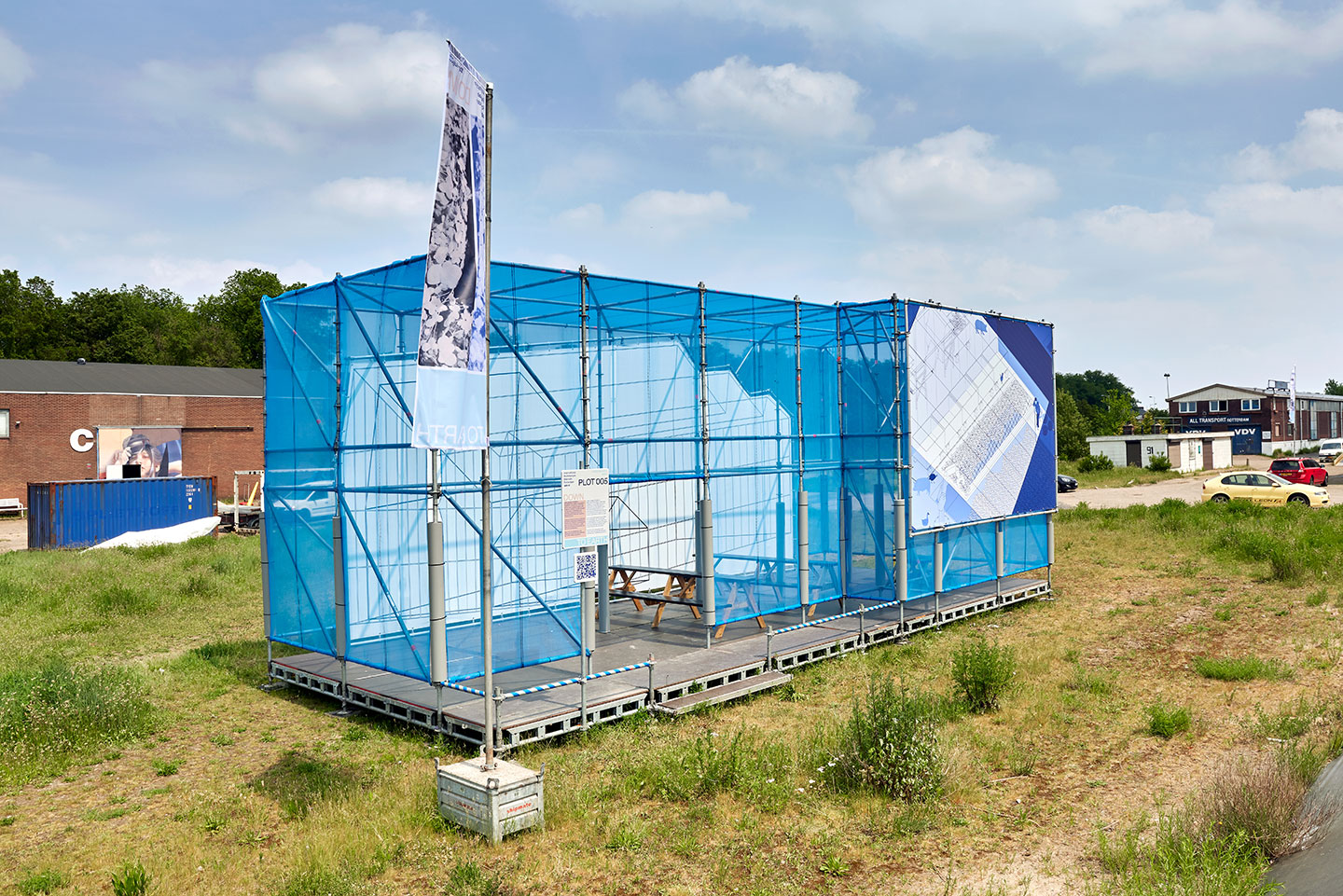
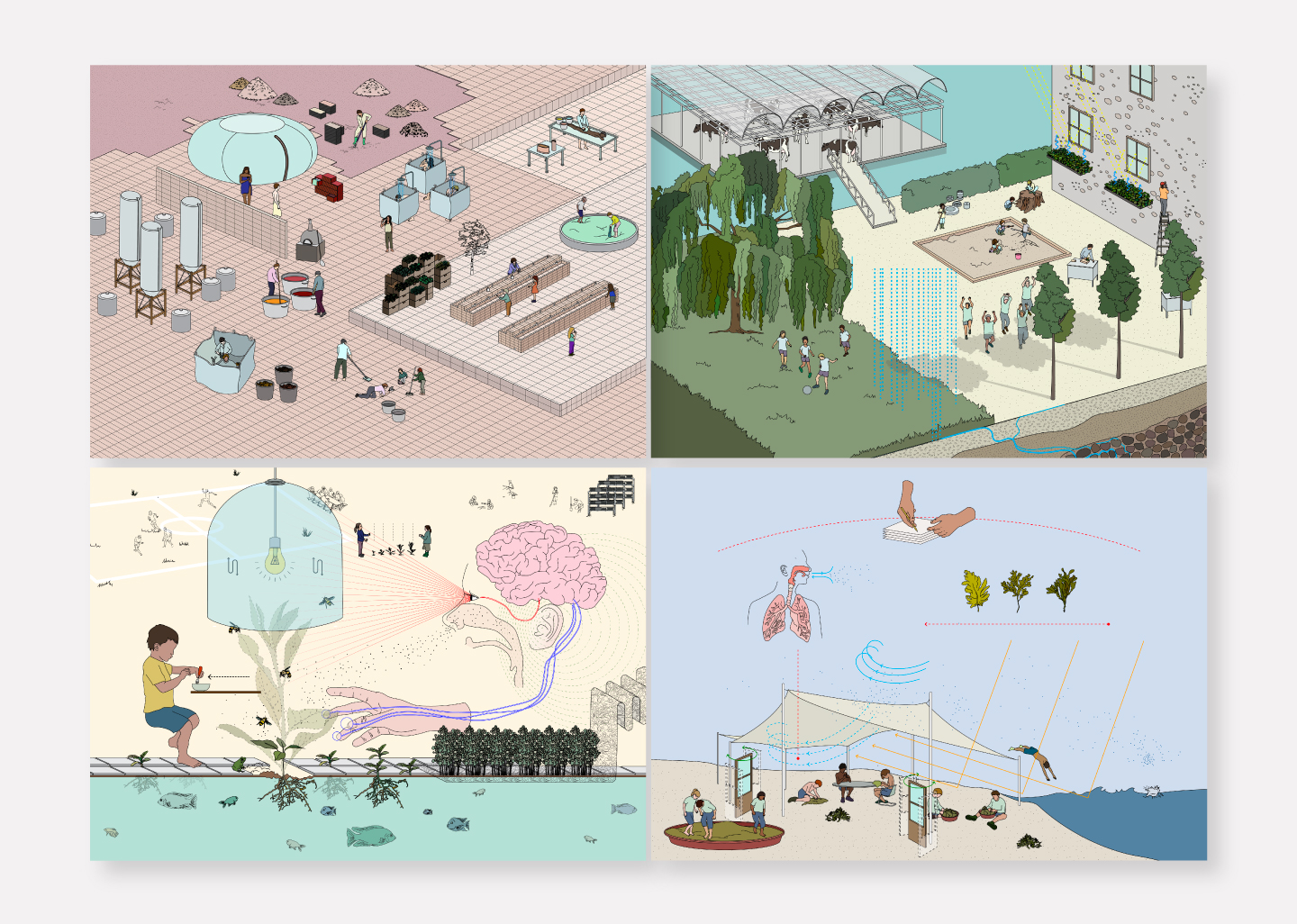
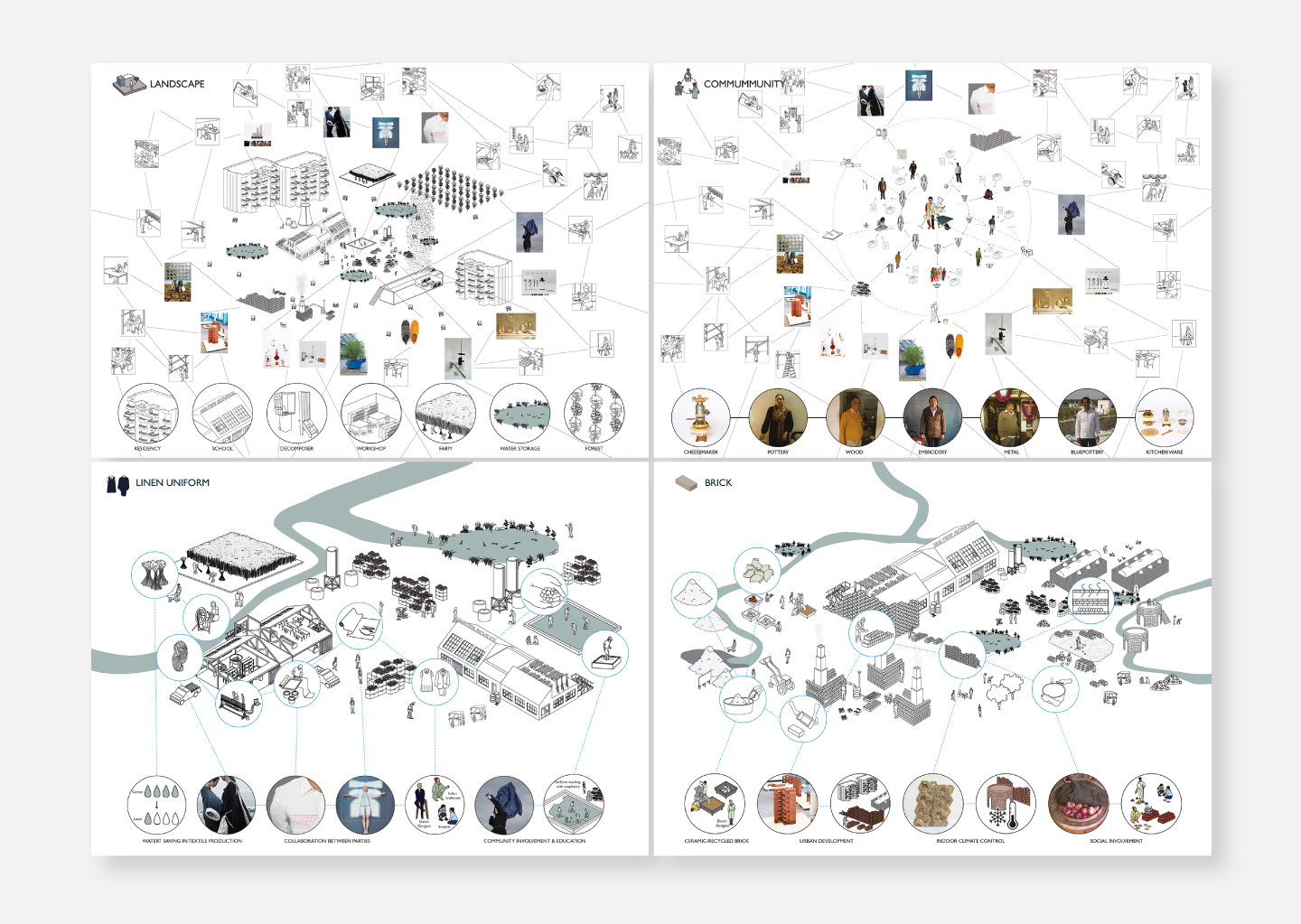
Waterschool, a design research initiative centred on water as an education medium, was introduced during the Cheongju Craft Biennale 2023. I led the design of a series of workshops which engaged local undergraduate students in applying Waterschool’s methodology to the Korean context.
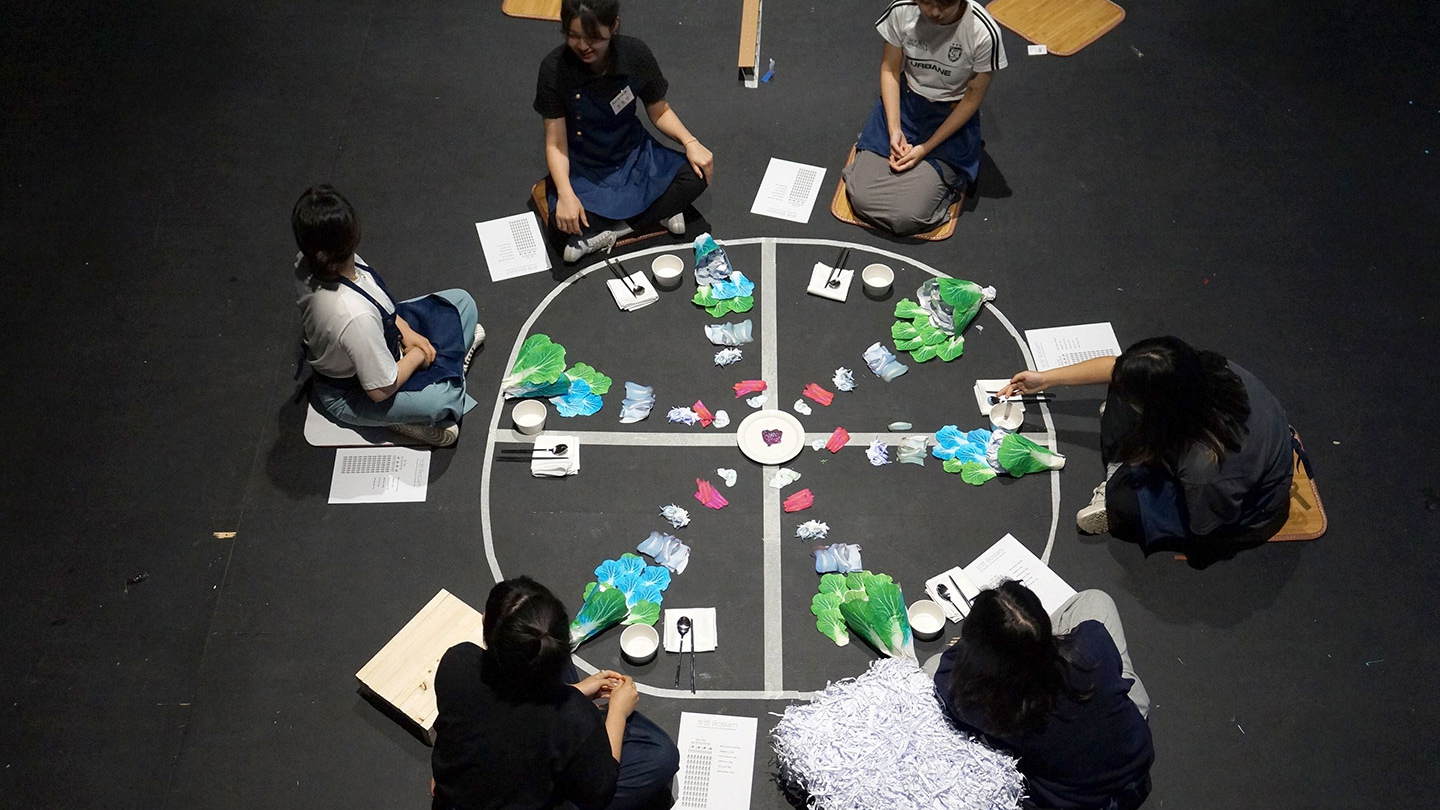
I facilitated discussions on water shortage and water footprints with young designers and the
public, linking research and design to tangible outcomes of the water footprints, including a
reduced water restaurant experience, water footprint library, exhibitions, and reports.
The workshop and the exhibition successfully elevated the participants' collaboration skills, guiding them to approach complex concepts in a tangible outputs.
This project reawakened me to the power of curiosity in solving complex problems like water shortages and climate change. Engaging and tangible experiences trigger curiosity and allow users to be involved, which are the foundation of cultural and behavioural change.
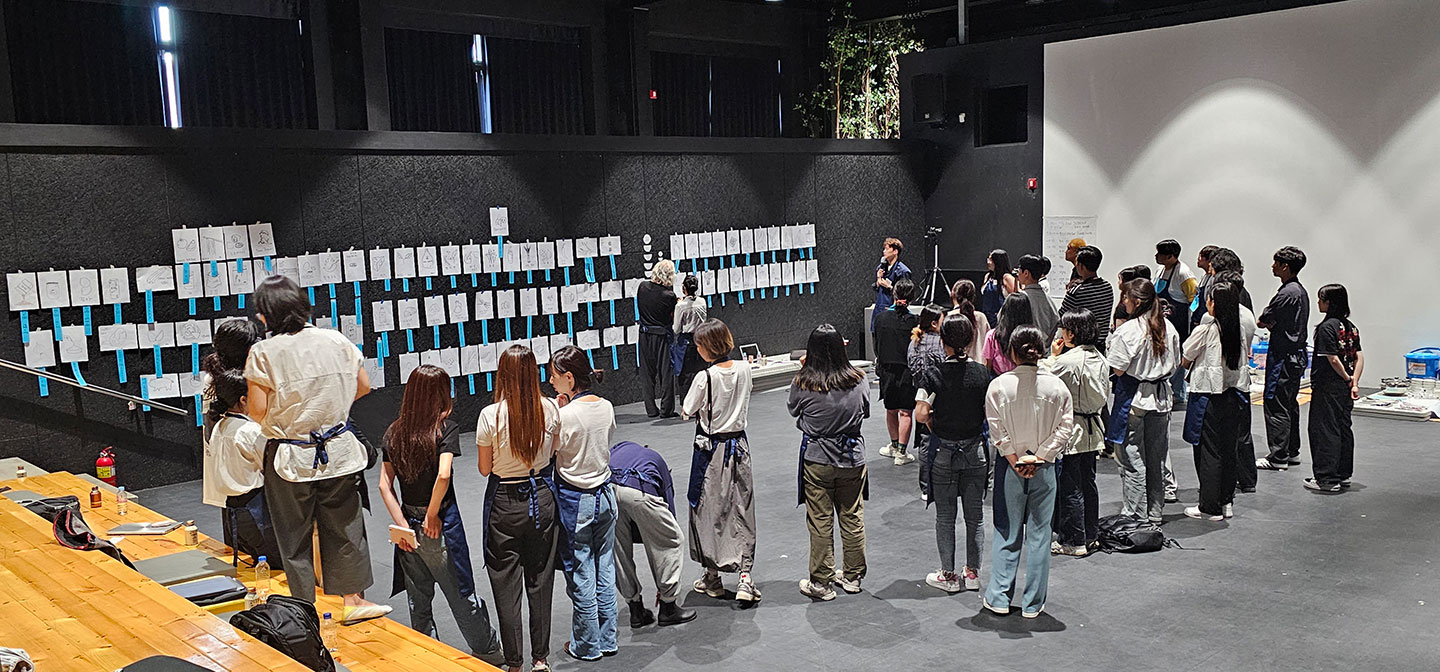
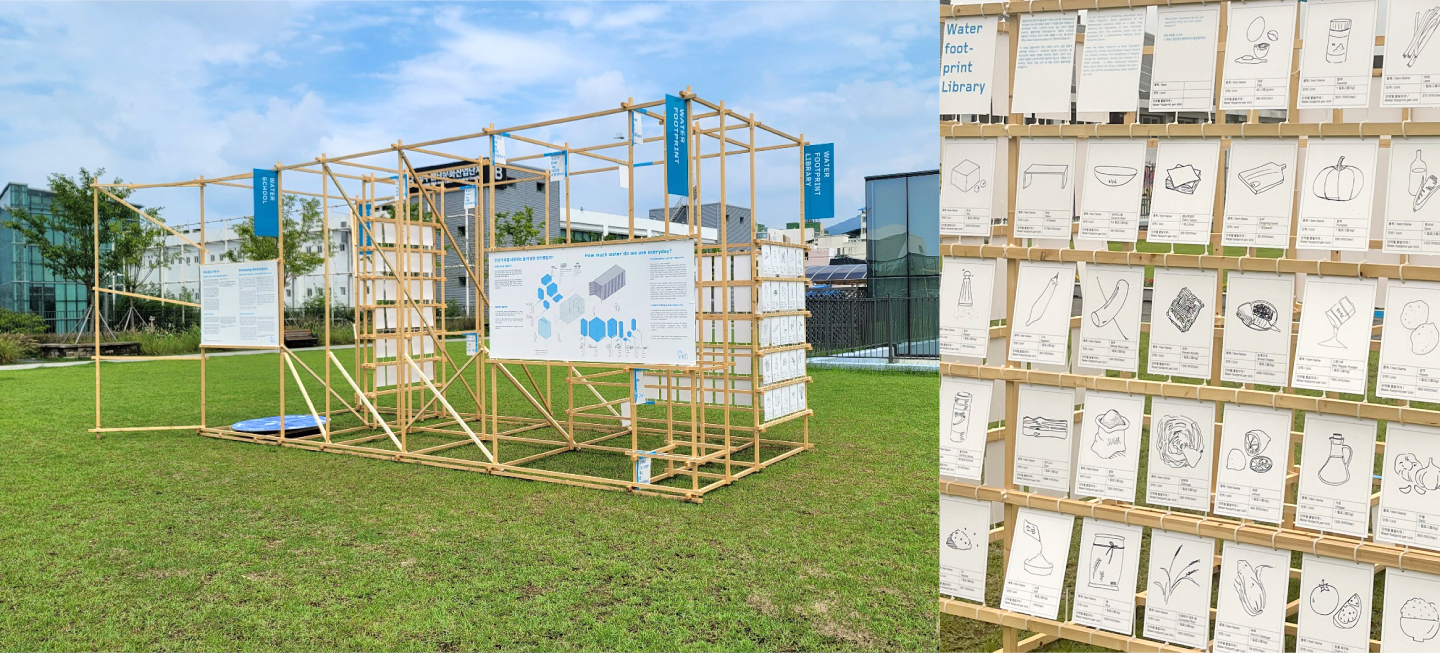
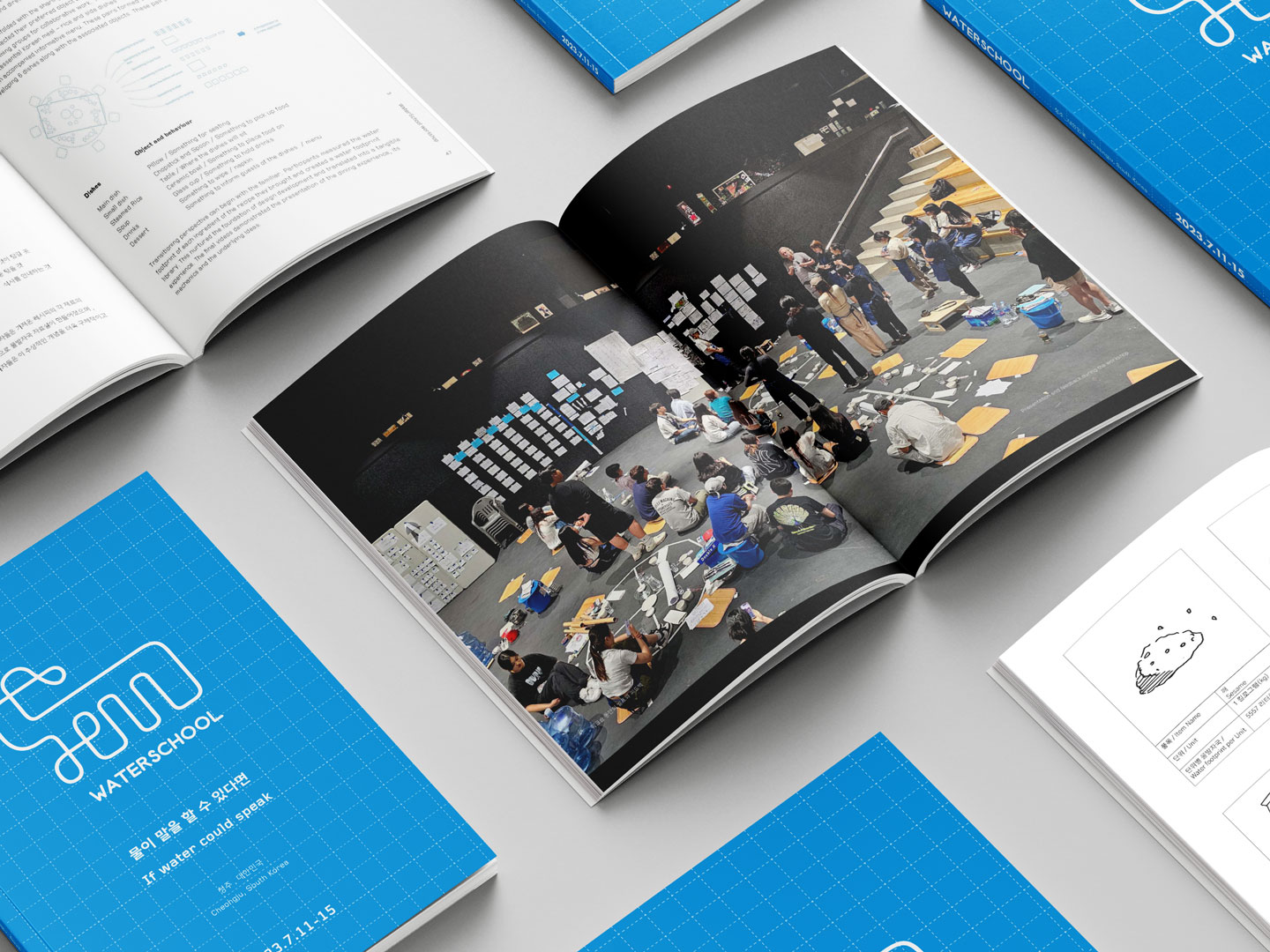
The Public Design for Local Communities project, initiated in 2019, brings together local design students, craftsmen, and residents. It seeks to enhance community experiences in public spaces by involving users creatively and installing innovative public installations and furniture.
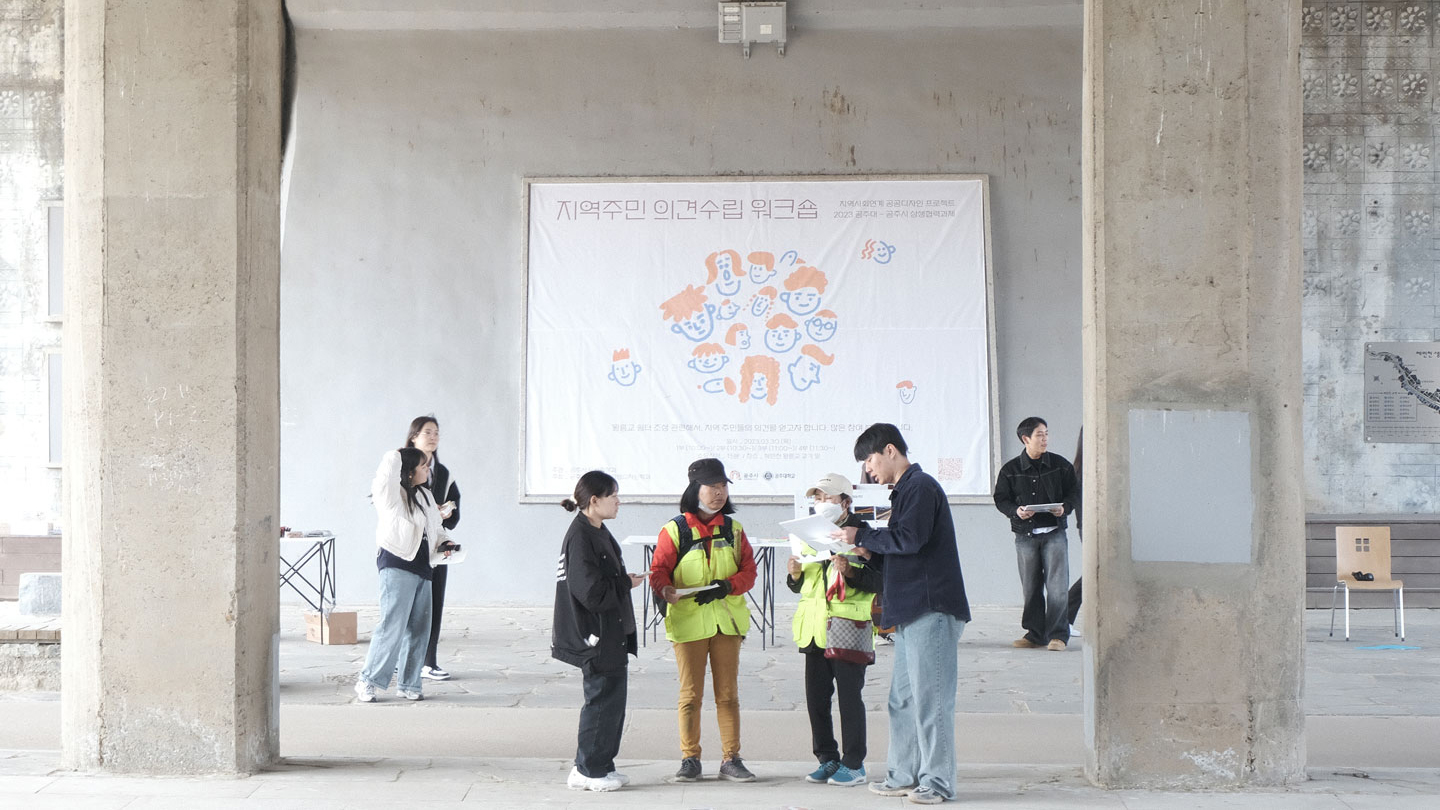
My contribution primarily focused on guiding young designers in engagement design, problem
reframing, and design strategies for public spaces. This aimed to empower multiple generations
within local communities and uncover unique local stories and designs. Additionally, I was
responsible for framing and documenting developed tools and research, facilitating knowledge
sharing and project expansion.
The 4-year project has successfully captured the voices of 61 young local designers and citizens. Through the directions, local designers, acting as agents, have influenced the local government and transformed 3 public spaces in Gongju.
This project taught me that public engagement is an opportunity to build the capabilities of all the actors involved, not merely to capture residents’ demands. The process uncovers gaps in agreements, understandings, or incentives between operators, residents, and designers.
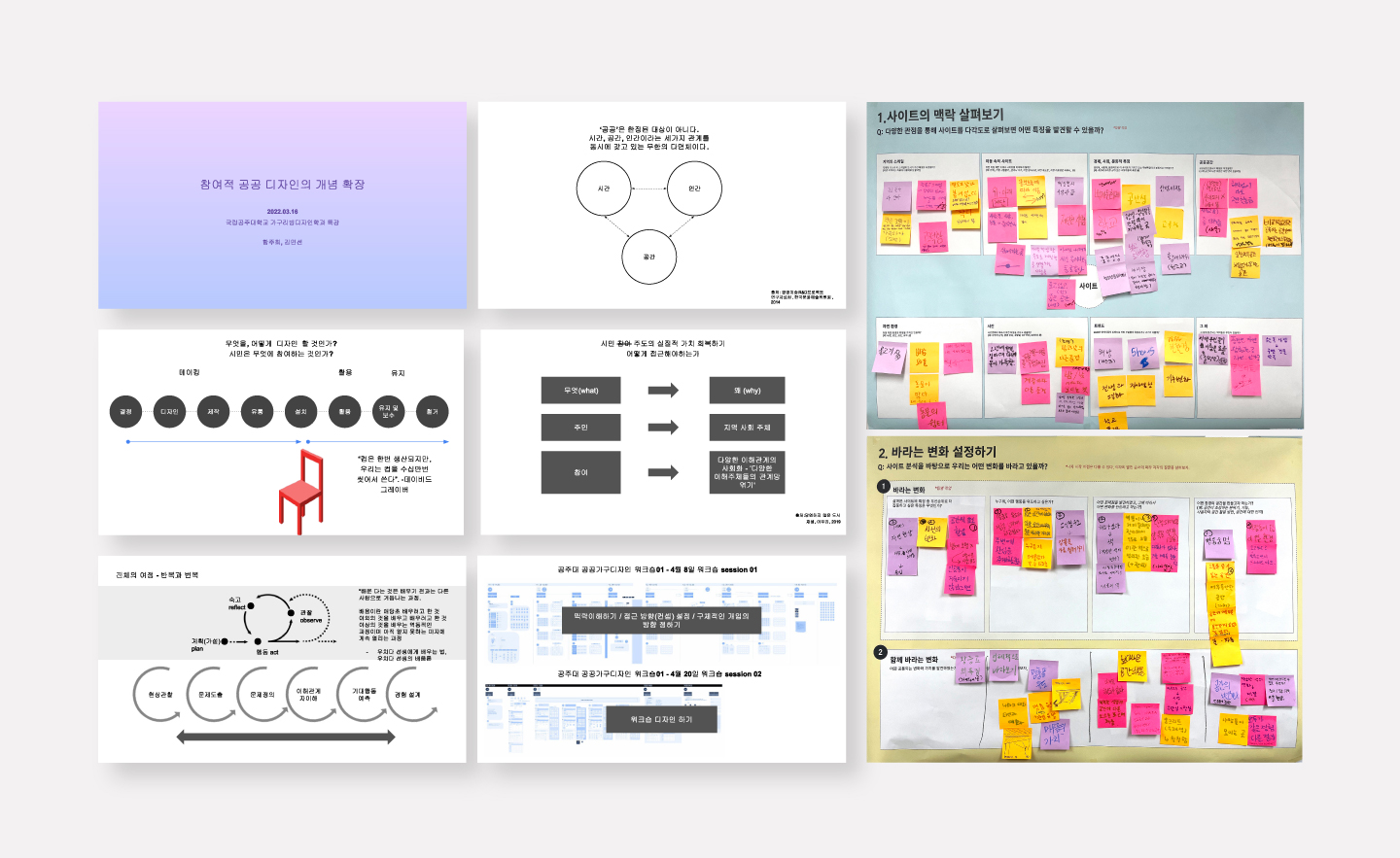
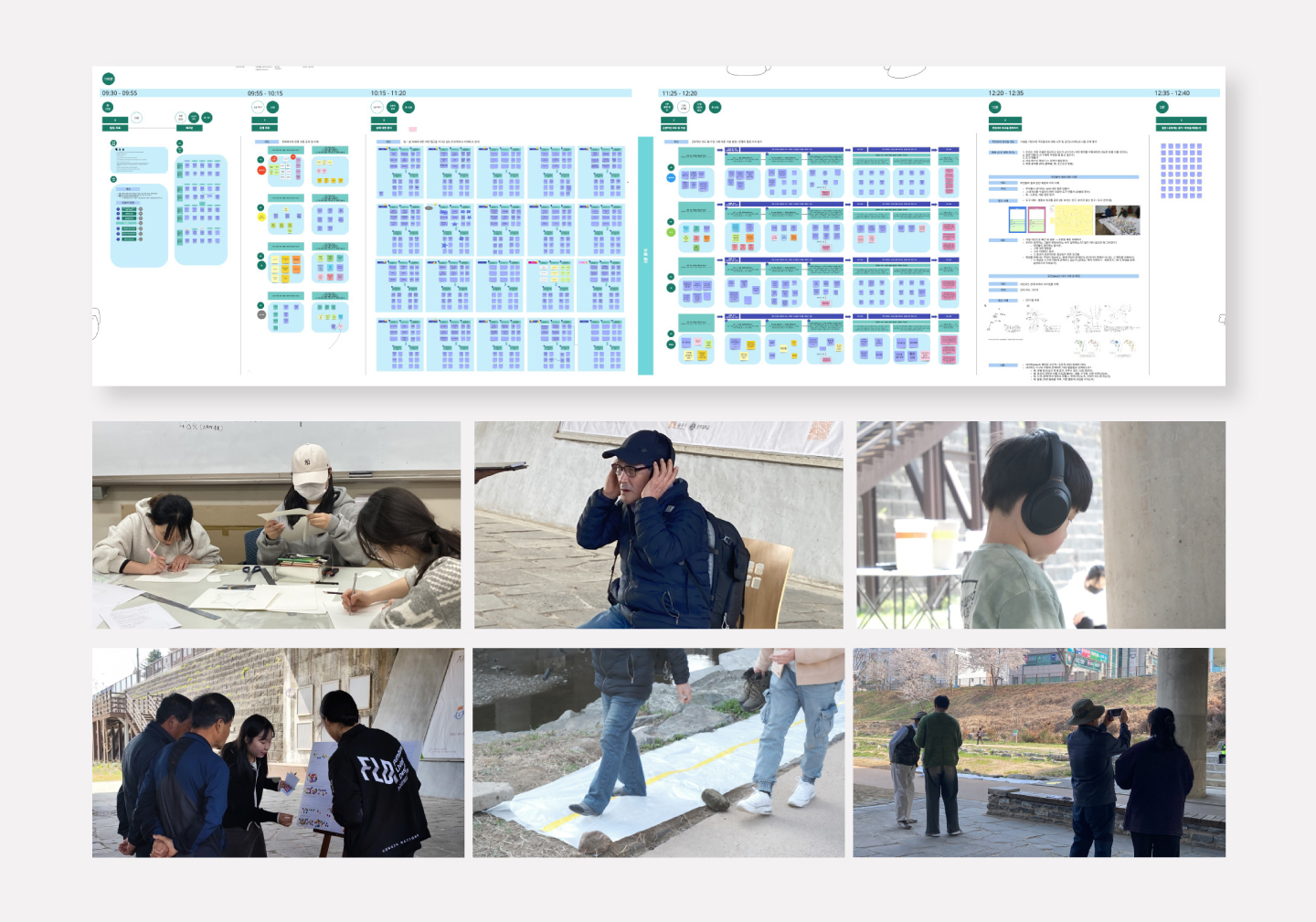
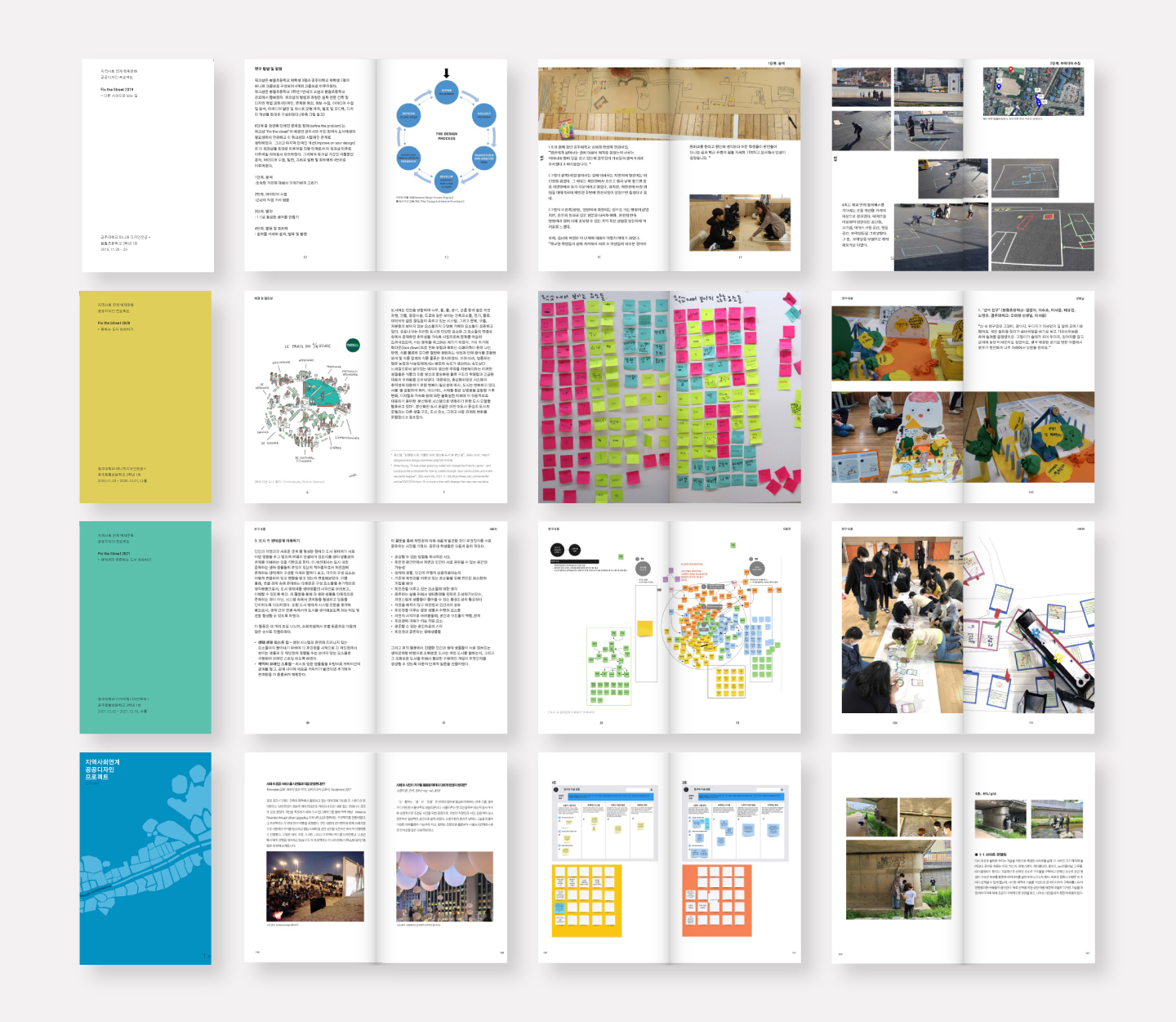
In my role as a Lecturer at Kookmin University’s Spatial Design Department I committed to innovative design education. Leading courses on ‘Space and Object’, ‘Space and Media’, my objective is to empower the next generation of creative leaders to explore and cultivate their diverse strengths and interests.
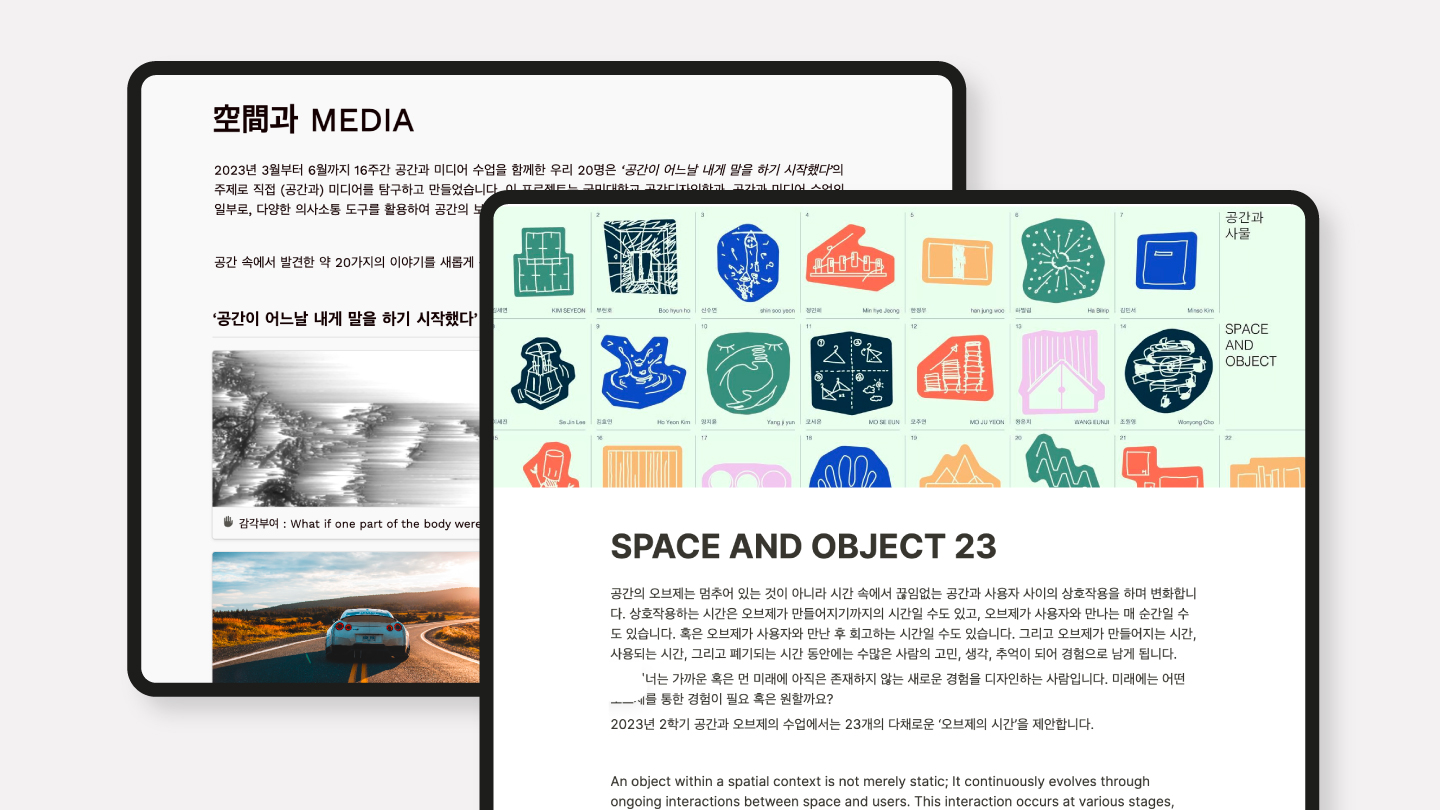
I crafted process-driven curricula, tools and evaluation framework to convey design thinking
theory and practices through lectures and workshops. Leveraging digital collaboration tools,
like shared process boards and ongoing reflection frameworks, I foster an environment to nurture
critical thinking and collaboration.
Now, 20% of students continue developing their projects post-course, delving deeper into their interests.
The prime learning from my teaching practice is the strength of empowerment in an individual's or group's growth. This insight has been my foundation for other work, including service development, project and team management, and cross-team collaboration.
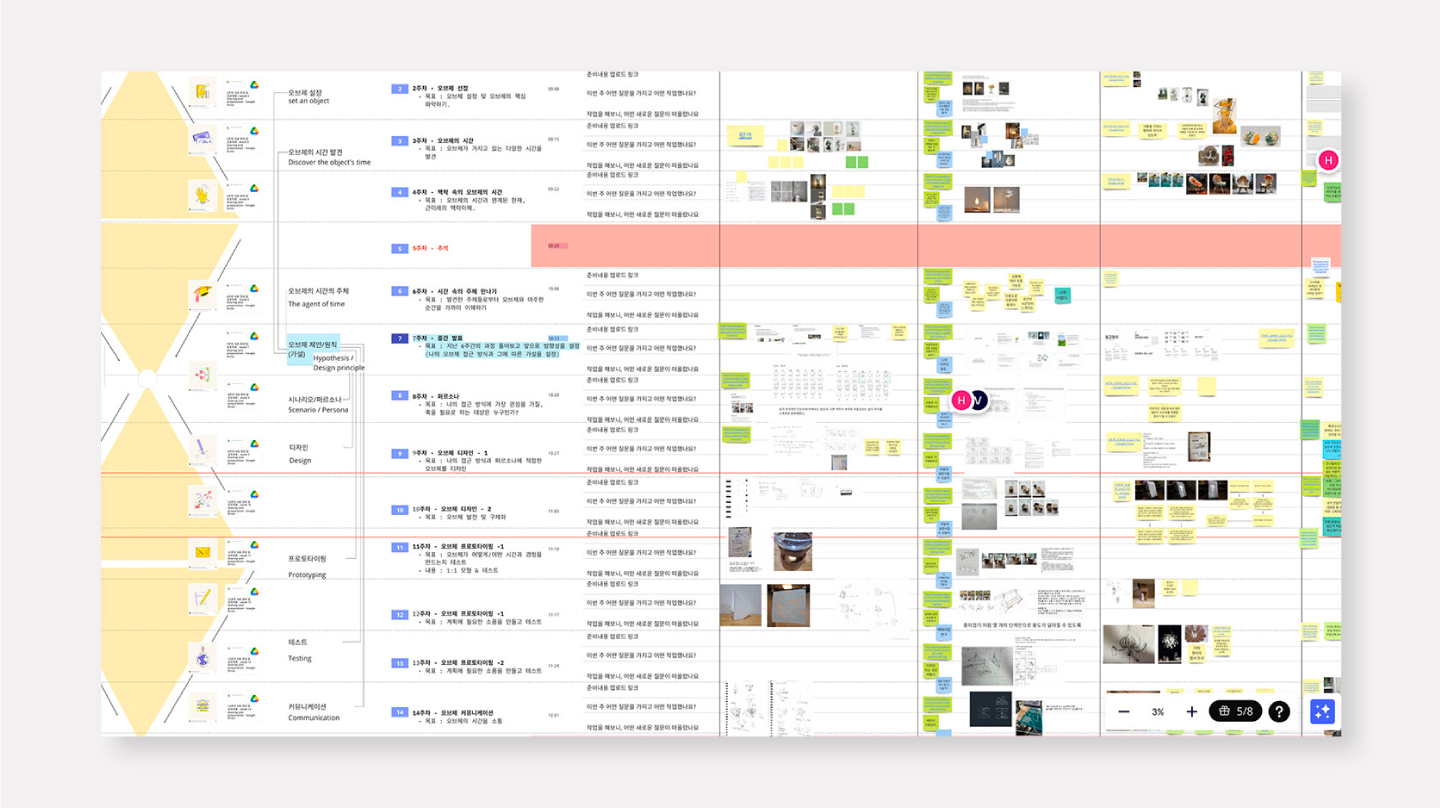
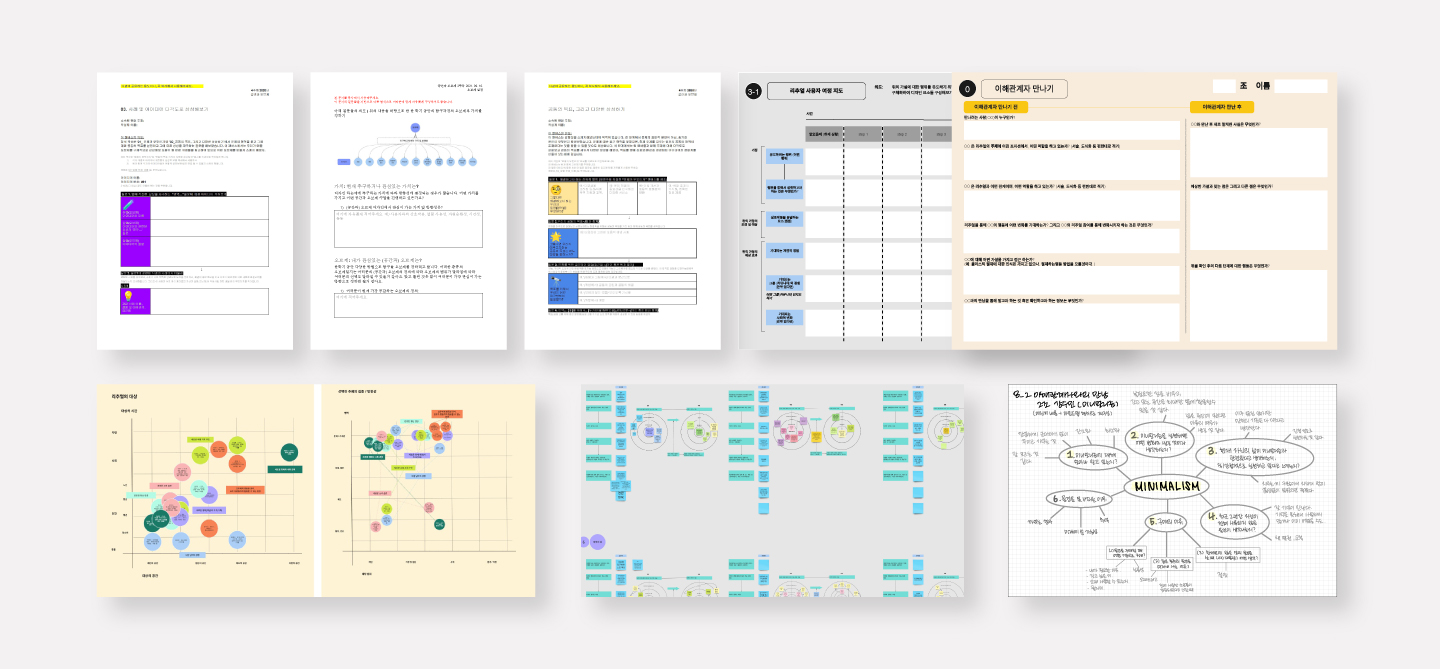
Supply Chain Broadcast aims to bridge disconnected communities across the global supply chain, utilising a blend of digital and physical media. The project seeks to improve the chain and its supporting infrastructure by fostering collaboration and innovation.
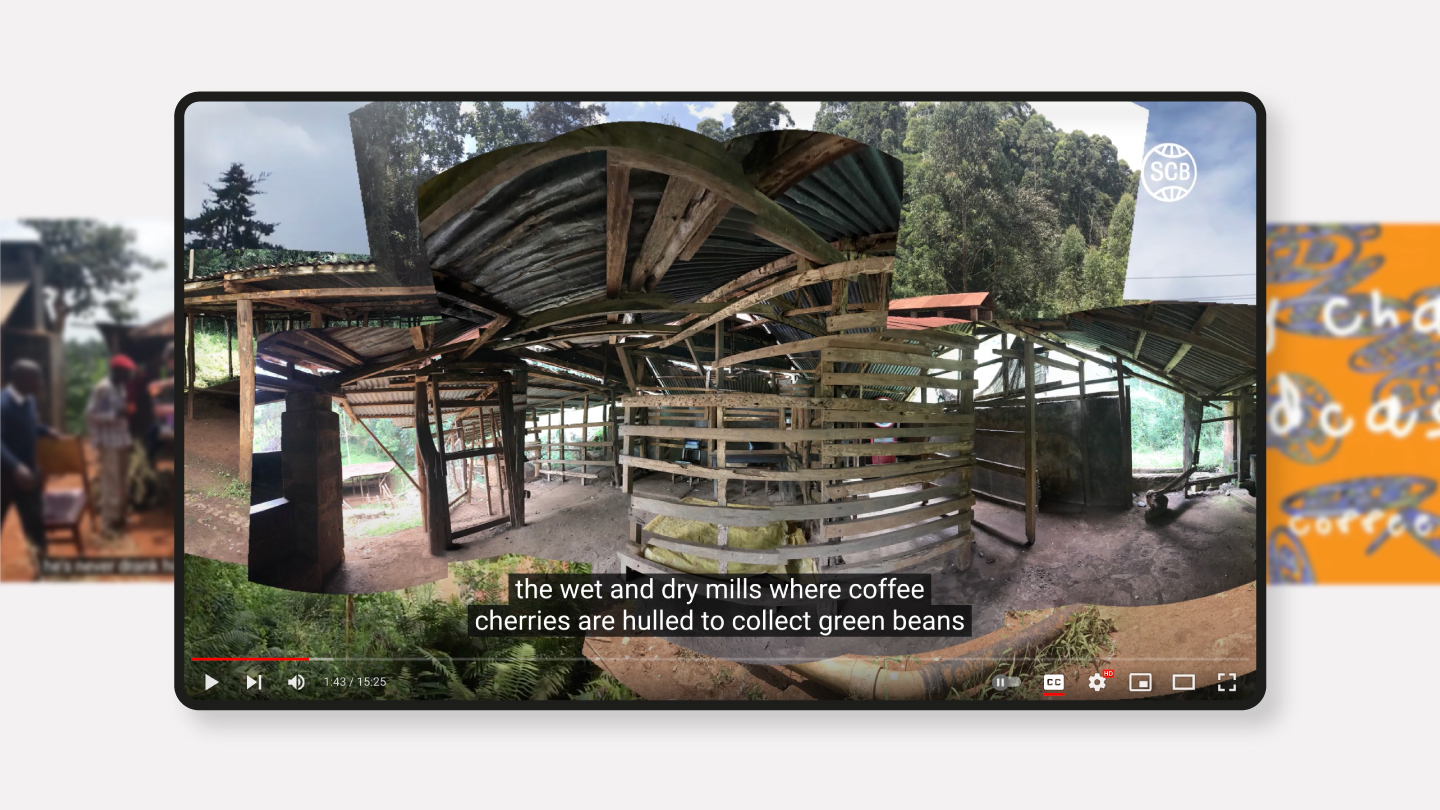
Initiating our platform with action research, we travelled the global coffee supply chain from
Kenya to the Netherlands. My role centred on amplifying unheard voices and connecting dispersed
challenges. I facilitated collective storytelling and established an accessible platform to
broaden networks, enable the exchange of narratives, and promote mutual learning among actors in
the global coffee supply chain.
The project has uncovered the systemic power dynamics, complexity of the network and disconnections within the chain.

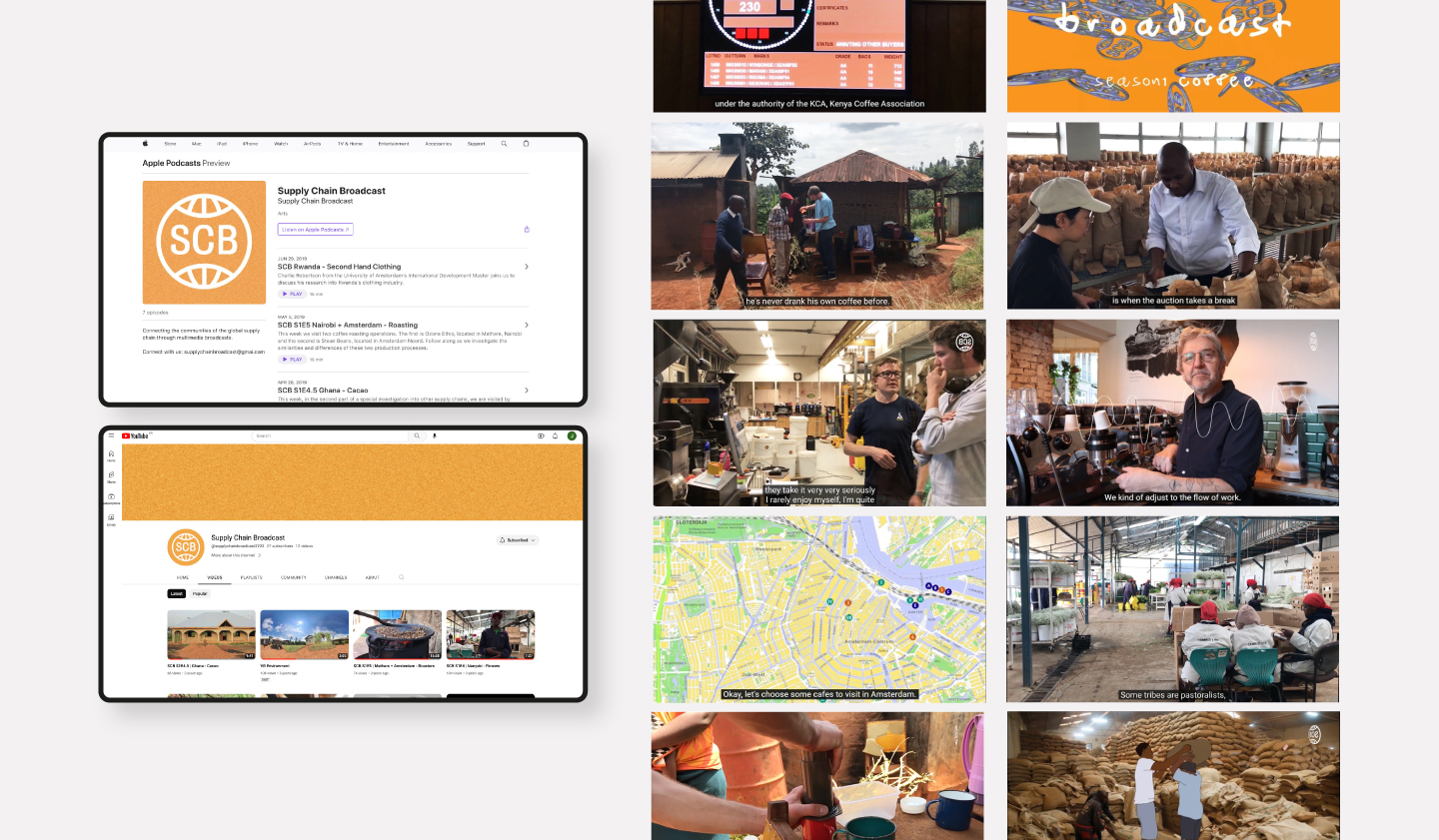
Persistent Selves is an exploratory demo app that utilises self-sovereign digital identity (SSID). The app aims to empower individuals to engage in heritage and legacy-planning by establishing trusted connections with future generations and their environment.
I led the concept development and approaches through research, visuals, and user journeys, collaborating with a graphic designer and a product developer.
The project has demonstrated the possibility of engaging with future selves while testing how to face uncomfortable facts.
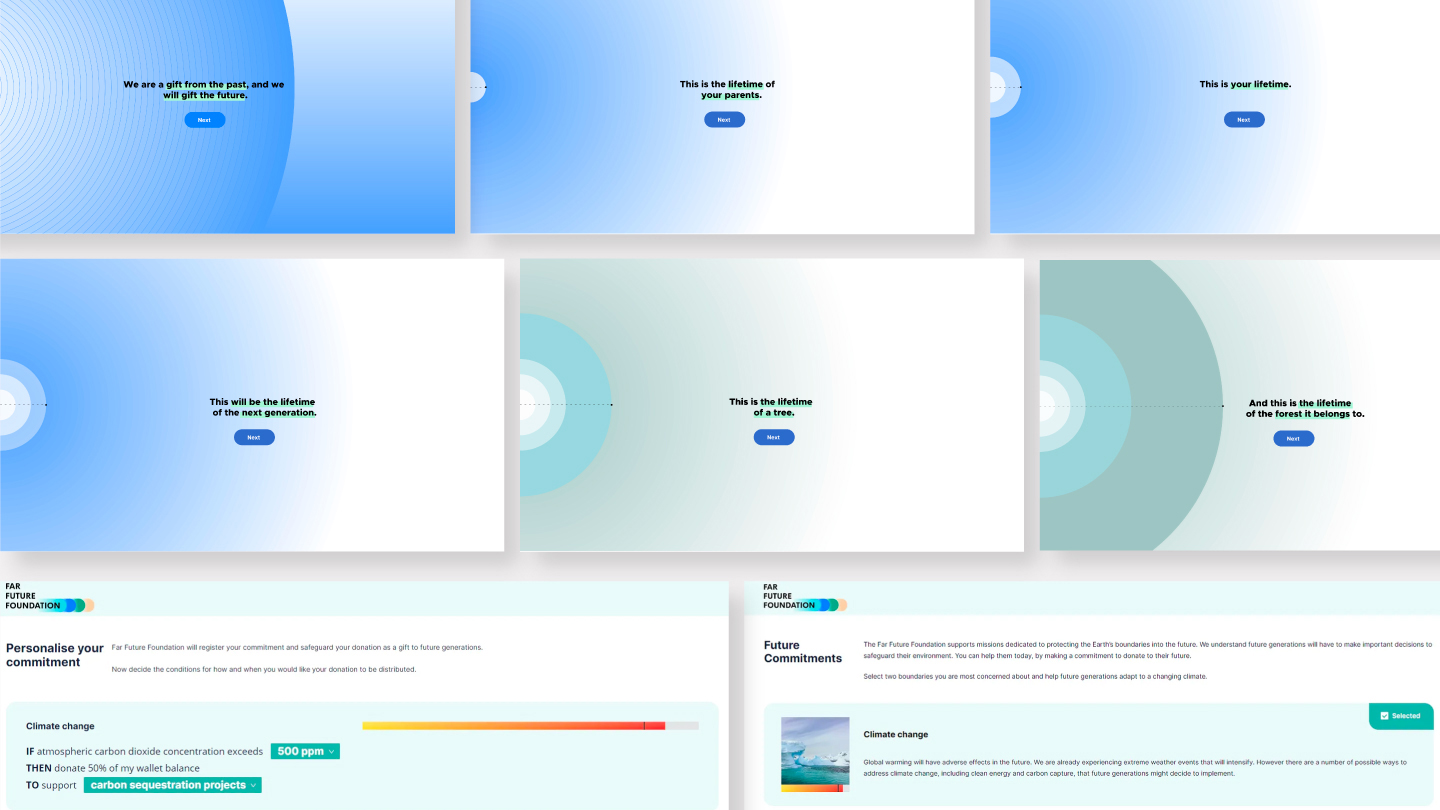
The Rapid Transition Lab, a collaboration between Stockholm Resilience Center, Dark Matter Labs, and Vinnova, was an exploratory research project to identify opportunities and pathways for Swedish food system actors to engage in a rapid transition in response to the COVID-19 crisis.
Through my involvement, I manifested 3 articles and visual analysis. Utilising system thinking,
visualisation techniques, and underlying future thinking, we conducted a comprehensive analysis
to unveil intricate interconnections and necessities to navigate uncertainty toward
sustainable transformations.
Research has been developed into workshops and is now in the stage of implementation through pilots, innovating school meals.
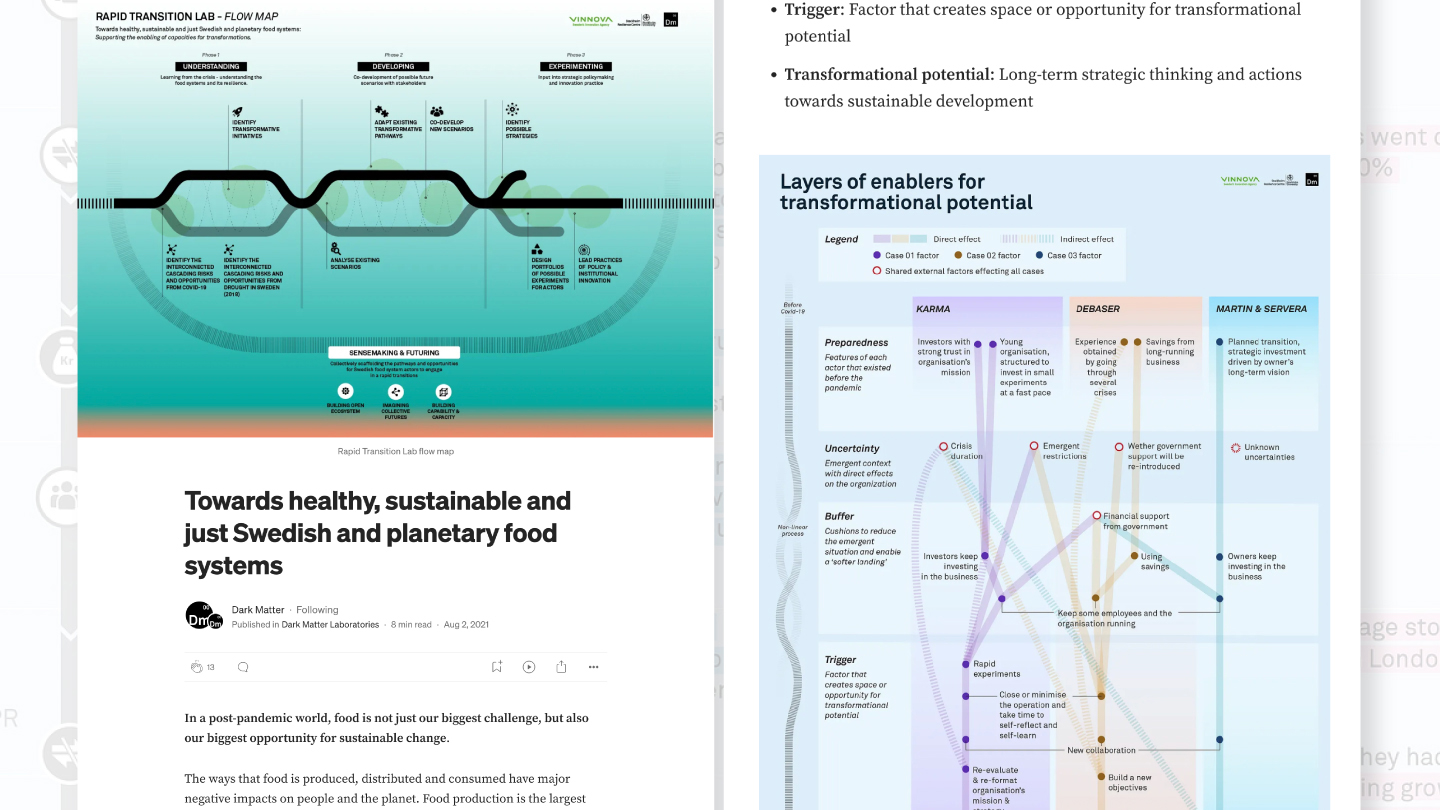
This system map illustrates system dynamics extending beyond immediate emergencies. It aims to assist in navigating uncertainty by anticipating patterns to identify new pathways forward over a longer time horizon.
To develop this map, I researched, crafted narratives and performed analysis, ultimately translating the dynamic system into a comprehensive map.
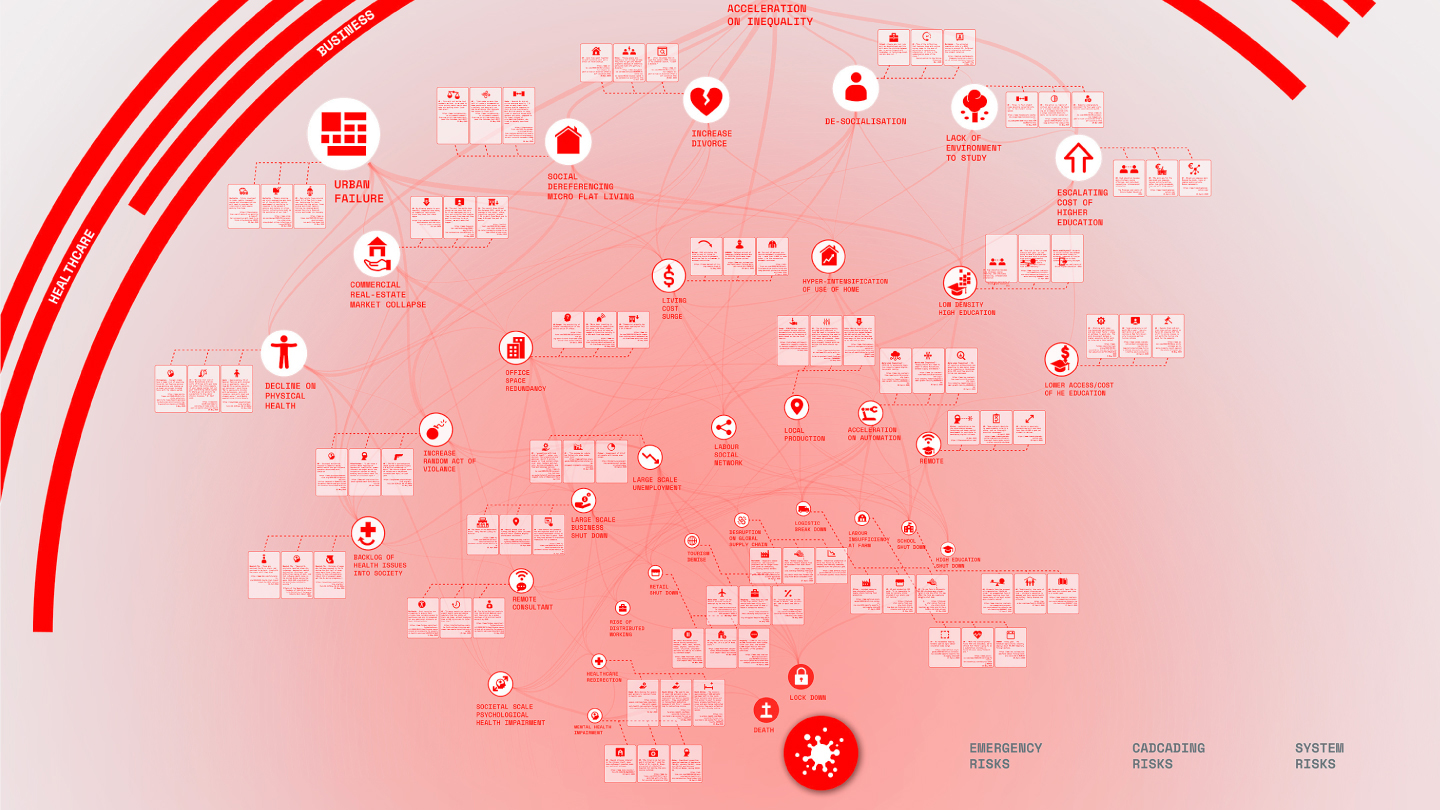
MA Design of Experiences
Sandberg Institute Amsterdam [NL]
BA Man and Communication
Design Academy Eindhoven Eindhoven [NL]
BA Spatial Design
Kookmin University Soeul [KR]
Figma
HTML
CSS
Miro
Adobe Suite
Sketch Up
Adobe CAD
Rhino
|
Problem / Opportunity Mapping
Journey Map
Service Bluepring
Information Mapping
Storytelling
|
Engagement Design & Facilitation
UX Prototyping
User Research
Co-Creation
|
Agile Management
Stakeholder Management
Leadership
Connect People
|
Wood Work
Metal Work
Plastic Work